Tour Package
Package holidays, popularly known as a tour package or simply the word ‘tour’ in the travel and tourism industry refers either to a package tour escorted or not escorted by the tourist guide.
When we say tour package, it means a pre-arrangement, prepaid trip that combines two or more travel components like airfare, airport transfer, accommodation, and other services . Practically, to define the tour package concept is complex one rather understand.
Holloway defines a tour package as “a total tourism product consisting of transportation from the market area to the destination, accommodation at the destination and recreational activities promoted by the tourists.”
According to Gregorg “a tour package is advertised journey including specific features, arranged and promoted with tour literature by a tour operator and paid for in full by the tourists before starting the tour.”
Technically, a package tour/tour package is a total tourism product as it generally includes transport from the origin place to the destination, accommodation at an en route place or at the destination and other recreational or travel services. These components are purchased by an individual, firm or company called the ‘ tour operator ‘. He combines all the travel components in a package and sells them at all-inclusive prices to the clients.

History of Tour Package
The term ‘tour’ was in vogue as early as 1670. The Britishers traveled to widen their knowledge of the continent, especially to study the culture and social life. This practice was gradually adopted by other lovers of cultural centers.
The result of the process was that many European historic and cultural centers were opened to the British tourist. By the early 1730’s the small fishing resorts around the British coast begin to attract tourists seeking to their diseases by drinking the sea-water or by immersing themselves in it.
The introduction of a rail link between the major centers in 1830, had a profound impact on the pleasure travelers for the first time. Many entrepreneurs began to inspire rail travel by organizing excursions for the public at discounted offers.
However, to ‘the origin of package tour’ the credit goes to Mr. Thomas Cook in 1855 , Cook, extended his business operation to different countries by introducing the first ‘ inclusive tour ‘ to Paris.
Mr. Cook put together all the components of tourism products and sold them as ‘inclusive tour’ to the tourists. His pre-packaged tour inspired other tour organizations in the travel industry to organize similar tours to all parts of the globe.
Most of Cook’s tours were a linear tour i.e., the person went from place to place on a single destination. Basically, Mr. Cook developed the concept of ‘grand tour and escorted tour’, the concept which is still used.
Incidentally, World War II has tremendously developed the package tour concept because of the following reasons:
- Social and Economic Conditions
- Increase in Aircrafts
- Marketing Conditions
- Legal Requirements
- Integration took place.
Today, package tours are a vital segment of the world’s travel and tourism industry. According to WTTC, the package tour sales generate $25 billion annually in the United States, $18 billion in Europe, $19 billion in Britain, and $21 billion in Asia. Today tour sales represented 50 percent of all leisure travel sales and 35 percent of all travel agency revenues.
Types of Tour Packages
A travel agency/tour operator deals with variety of ‘tour packages,’ catering to the diverse needs of tourists such as adventure, beach, architecture, cultural, business, conference, incentive tours, ayurvedic packages, Buddhist, religious, incentive tour, special interest tours, cruise tour group tour, educational tour, heritage, monuments, wildlife lovers, etc. These are broadly classified into five categories :
- Independent Tours
- Escorted Tours
Hosted Tours
- Incentives Travel/Tours
Freedom Tours
Independent tour.
Independent tours are prepared/formulated for those tourists who want to travel independently. The components of such tours are air travel, air transfer, accommodation, travel documents, sightseeing, boat riding, entertainment, and other travel services.
However, in some cases, the tourists are free to purchase every single component separately. Thus, this type of tour provides the tourists considerable freedom to plan the activities according to their own choice.
An independent tour may or may not be an all-inclusive tour. Therefore, tour price varies depending on the type of air travel, air transfer, accommodation and is inclusive of other tour components. The foreign independent travel (FITs) and domestic independent travel (DITs) are examples of an independent tour.
Escorted Tour
When a travel agency includes the services of a well educated and trained tour manager in its package, the tour is called an escorted tour. Basically, escorted tours are meant for those travelers who are planning to visit a foreign country first time.
The escort’s responsibilities and duties are to provide comprehensive information and assistance to the group or individual traveler, at the origin, en route and the destination place. The excursion tours are the example of escorted tours.
A hosted tour means when an agency utilizes the services of another agency at a particular destination. Suppose a group of French tourists is coming to India. When the group arrives in India, they are greeted at the airports by TCI, which assists them in clearing their baggage and transfer them to the hotel.
Their tour-host (TCI) is available to offer device and information about the local attractions and entertainment. Further, when the group arrives at another designation in India, a different travel agency greets them at each tourist spot. Thus, a hosted tour provides the tourists maximum level of pre-arranged and personalized services.
Incentives Travel/Tour
It is a motivational programme or a fully paid holiday which is given to the employees by the enterprises as a reward. Mostly in medium and large-scale companies and usually too distant destinations to spur them in maintaining their track record, to increase output, improve the image and moreover to earn the long period loyalty of the employees.
There are a number of the other packages offered by a tour company such as a custom tour an excursion tour, an adventure, and special interest package tours.
Freedom tours are becoming very popular these days among the working class. These tours are designed as per the choice of tourists. The tourist is free to choose and plan how they want to travel and enjoy their holidays. These types of tours are meant for that kind of people who like to decide how, when, and where to travel.
This tourist may an individual, family, group holidays for families and group travel for business. These tours are promoted and developed by the ORBIT.
Components Of Tour Package
What is to be included in a package tour largely depends and varies from one tour organization to another, or from the one country to another, or from one destination to another and from one market to another market. But there are certain well-defined travel services which always turn a part of a package tour irrespective of the tour operator/travel agency, destination and even the market condition.
If we study and see the package tours offered by Thomas Cook and Sons Ltd., Cox and King Ltd., and other international travel companies, we find that a package tour has two major components. Therefore, a standard package tour has two basic components namely:
- Ground Arrangements
Travel industry experience has shown that the first component, i.e. ‘Travel’ is directly bought by the agency from the principal providers like airlines and transport operators and for ground arrangement, the travel agency management asks the ground operators.
The reason behind buying ground arrangement from a handling agency is that it represents as a ground operator at a particular destination for the numerous tour organizations. Secondly, the price offered by it are much lower than an individual agency obtain. Thirdly, it is very difficult to get credit from the supplier and finally, it ensures professional travel services.
Factor Affecting the Tour Package Formulation
Generally, the business of package tours involves great risk, high breakeven, high-quality product, and competitive prices. Therefore, the tour management requires in-depth tour planning and market survey. However, before a tour is designed the tour manager should take into consideration certain factors which are crucial in the formulation process.
These factors have a profound impact on the tourist’s satisfaction. The main factors are:
- Purpose of Tour
- Choice of Destinations
- Tourist Budget
- Legal Requirement
- Types of Tourist Accommodation
- Tour Period
- Departure and stay information
- Tour price; inflationary condition
- Tour Reference Tools
- Tour Features – political stability
- The relationship between the host and tourist generating nation
Tour Package Design and Selection Process
The quality of a package tour is entirely based on the above factors. Essentially, to design/formulate a travel product, the tour manager has to take the biggest responsibility, intuitiveness, imagination, and innovation coupled with a lot of business activities which range from finding new exotic destinations and planning, organizing or promoting such tour.
The following are the main stages in the tour design and selection process:
1. Initial Research
(i) the destination research.
The decision to develop and formulate a new package is a multi-stage process that involves various positive and negative points/steps. Normally, the idea for a new product comes either from the tour executive within the company due to a review of the questionnaire completed by the previous tour members because of the political, economic and social development in a particular area.
When a tour manager see that a large number of old clients are interested in taking a trip to particular destinations, naturally, those destinations become the nucleus of a new ‘tour concept’.
(ii) Market Research
Since tour package is a complete tourism product, obviously, before formulating/designing this product, market research needs to be analyzed and assessed in a systematic manner. Market research provides us the answer to the following questions:
- What is the size of the tourism market?
- Who are the existing clients?
- Where do they live?
- Who will be their potential buyers?
- Who are their competitors – their strategy and area of business leisure?
- How many tourist ones want to cater?
- What price will the clients accept?
- What facilities are available and required?
- What are the constraints viz., license, permission, finance, restrictions, taxes, and others?
Once we know the basic components of the package tour, distribution channels, market conditions, constraints in the tourism market, we can develop the marketing strategy. It enables the smooth functioning of the agency and also offers a clear picture of the tour programme. Practically, market research is conducted by the private tour companies/ private tourism enterprises in order to penetrate the market.
2. Itinerary Preparation
By itinerary one means the designing of a programme which one wants to sell and it includes destinations, stopping points, number of days and the travel services that are to be included in the programme. Whether it is a lean season or an offseason, escorted or not escorted, consumer-oriented or readymade tour programme, the itinerary is prepared to identify the origin, destinations, stopping points, accommodations, sightseeing and other travel services on travelers’ trip.
3. Handling Agency or Destination Company
The appointment of handling agency not only ensure excellent travel services to the tourist but also make the operation smooth and profitable. It is a matter of great significance as the success of travel business largely depends upon the clients are actually taken care of during the tour.
It is a positive match between the promised services and tourist’s actual experiences or feelings. Thus, the tour operator should consider the experience of the handling travel agency in the business, the area of operation, reputation, credibility, professional staff, credit facilities and the competitive price in appointing a handling agency.
4. Negotiation
It is another important management decision area in tour designing and planning. Once the decision has been made regarding the destination’s concerning their date, duration and number of clients to be carried during the trip, the tour management starts negotiations with the principals’ suppliers for a normal contract.
Negotiation means talk between the travel companies and the principal suppliers for the terms, conditions, and prices of the components of a tour package. When both parties are satisfied, it leads to a formal or informal contract between them. The tour company negotiates with the following tour vendors/suppliers:
- Accommodation
- Transport Operations- Rail and Road
- Ground Operators
- Cruise Companies
- Car Rental Companies
- The overseas representatives
- Ancillary Service Organizations
5. Coasting and Pricing a Package Tour
The cost of a package tour encompasses the air ticket, the hotel room, car rental, entertainment charges, administrative costs, promotional costs, and other travel services. The confidential tariff helps the travel company in preparing the cost sheet which will enable the concern to determine its price strategy.
Tour pricing is a big factor in the success of the company’s tour programme. The price of a package tour is, whether it is an escorted, independent or hosted the tour, often lower than the combined costs of the same components purchased separately from the principals. However, the purchase price of a travel product is based on three factors: Cost, competition, and demand.
Every tour package sold by a vendor has a quantifiable cost. To produce profit the price paid by the tourists must be greater than the agency’s cost.
6. Tour Brochure
The tour package is an intangible product which has to be purchased by the tourists/clients without inspection and sometimes even without adequate knowledge. In these circumstances, the brochure becomes the principal instrument to perform the major tasks to inform the clients about the products and to pursue them to purchase it.
Designing, printing, and distributions of tour brochures require necessary skills and knowledge about the components of the tour package. Basically, in the era of specialization and intense competition, tour brochure creates awareness and provides the description of the holiday programme.
Thus, tour management should consider various pros and cons while preparing a tour brochure. A brochure should contain the following information:
- Name of the Travel Company
- Means of transport
- Details about destinations
- Accommodation, types, location, meals
- Name of the overseas representative
- Duration of each tour
- Booking, reservation and cancellation conditions
- Details of other services – insurance, currency, entertainmentTravel documents required
- Details of price
7. Development of Reservation System
The next step in tour formulation process is reservation system. The agency management in order to put a package into operation must develop and implement a scientific reservation system. The system depends on whether the reservation is to be handled manually or with a computer working on the distribution method.
Whatever method the agency may adopt, the agency management should always keep in mind the sole objective of the reservation system.
8. Marketing of Tour Package
Once a tour package is ready, travel agency management has to make a careful decision regarding promotion and marketing of the particular package tour. The basic objective of management is to make a tour package widely known to make it more and more attractive.
To achieve these objectives, the management must consider the budget available, promotion mix, potential market, easiest and most effective media, campaigning through the international, regional or the public/private sector etc.
The promotion of a package tour means increasing its sales potential and creating an awareness of the existing and potential markets. The following methods are commonly used to promote package tours:
- Middlemen – Retail Travel Agents, GSA, consolidators
- Familiarization tours
- Building Brand Loyalty
- Encouraging Potential Buyers
- Competitive Market
9. Tour Handling/Actual Tour Operation
After the successful marketing and achieving target sales, the next and final step in the process of tour designing is tour handling. It means an actual operation of tours, which generally includes administrative work and passenger handling like maintaining reservations, handling deposits, sending advice to ground operators, arranging travel representation, analyzing the feedback received from clients/escorts/ground operator and so on.
All this is not an easy task. At every stage, one has to face different types of queries and problems due to lack of coordination and communication.
Significances of Tour Package
Tour package is beneficial to travel companies, travelers, destinations and other organizations which are directly or indirectly involved in the tourism business. The main benefits are:
- Increase the seasonality of a destination cost/price
- Earn foreign currency
- Better quality of products professional services
- Wide-variety of the tour package
- Provide bulk business to organizers
Understanding Package Tours in the Travel Industry
In the vibrant world of travel and tourism, a package tour is a pre-arranged holiday that combines a variety of travel services into one comprehensive package. These services typically include transportation, accommodation, meals, guided tours, and other amenities. Package tours are popular among travelers seeking convenience, affordability, and a stress-free vacation experience. Let's delve deeper into the concept of package tours and explore the key components that make them a preferred choice for many globetrotters.
Components of a Package Tour
A typical package tour includes several key components that are carefully curated to provide travelers with a seamless and enjoyable vacation experience. These components may vary depending on the destination, duration, and theme of the tour, but the following are some common elements found in most package tours:
- Transportation: Package tours often include round-trip transportation from the traveler's home to the destination. This may involve flights, train tickets, bus transfers, or other modes of transportation.
- Accommodation: Accommodation is a crucial part of any package tour. Travelers are typically provided with pre-booked hotel rooms, resorts, or other types of lodging that meet the tour's standards and budget.
- Meals: Many package tours include meal plans that cover breakfast, lunch, and dinner. These meals may be served at the hotel, local restaurants, or as part of guided tours.
- Guided Tours: To enhance the travel experience, package tours often include guided tours of popular attractions, historical sites, cultural landmarks, and other points of interest. Knowledgeable guides provide valuable insights and ensure that travelers make the most of their visit.
- Activities and Excursions: Depending on the tour package, travelers may have the opportunity to participate in various activities and excursions such as adventure sports, sightseeing tours, shopping trips, and cultural experiences.
- Transportation Within Destination: Package tours may also include transportation within the destination, such as airport transfers, shuttle services, or private vehicles for sightseeing.
- Travel Insurance: Some package tours offer optional or mandatory travel insurance to protect travelers against unforeseen circumstances such as trip cancellations, medical emergencies, or lost luggage.
Types of Package Tours
Package tours come in a variety of forms to cater to different preferences, budgets, and travel styles. Here are some common types of package tours that travelers can choose from:
- All-Inclusive Tours: These tours cover all major expenses, including transportation, accommodation, meals, activities, and sometimes even gratuities. Travelers can enjoy a hassle-free vacation without worrying about additional costs.
- Adventure Tours: Adventure tours are designed for thrill-seekers and outdoor enthusiasts who enjoy activities such as hiking, trekking, rafting, and wildlife safaris. These tours often include adrenaline-pumping experiences in exotic locations.
- Cultural Tours: Cultural tours focus on exploring the history, art, cuisine, and traditions of a destination. Travelers have the opportunity to immerse themselves in the local culture through visits to museums, historical sites, festivals, and interactions with residents.
- Luxury Tours: Luxury tours offer a premium travel experience with upscale accommodation, fine dining, exclusive amenities, and personalized services. These tours cater to travelers seeking a high level of comfort and sophistication.
- Group Tours: Group tours bring together a group of like-minded travelers who share a common interest in exploring a particular destination. These tours offer camaraderie, shared experiences, and the opportunity to make new friends along the way.
- Customized Tours: Some travel companies offer customized package tours that allow travelers to tailor the itinerary, activities, and accommodations to suit their preferences. This option is ideal for travelers looking for a personalized and flexible travel experience.
Benefits of Package Tours
Package tours offer several benefits that make them an attractive choice for travelers looking for a hassle-free and enjoyable vacation experience. Some of the key benefits of opting for a package tour include:
- Convenience: Package tours take the stress out of travel planning by bundling all essential services into one comprehensive package. Travelers can relax and enjoy their vacation without worrying about making individual arrangements for transportation, accommodation, and activities.
- Affordability: Package tours often provide cost savings compared to booking each component separately. Travel companies can negotiate discounted rates with airlines, hotels, and attractions, enabling travelers to enjoy a budget-friendly vacation without compromising on quality.
- Expertise: Package tours are curated by travel experts who have in-depth knowledge of the destination, local attractions, and cultural nuances. Travelers benefit from the expertise of guides and tour operators who ensure a well-rounded and enriching travel experience.
- Safety and Security: Traveling with a reputable tour company offers an added layer of safety and security. Tour operators have emergency protocols in place, experienced guides to assist travelers, and 24/7 support to address any unforeseen issues that may arise during the trip.
- Time-Saving: Package tours are designed to maximize the traveler's time by providing a well-structured itinerary with carefully planned activities and sightseeing opportunities. Travelers can make the most of their vacation without wasting time on logistics or decision-making.
- Local Insights: Guided tours included in package tours offer valuable insights into the destination's history, culture, and traditions. Travelers have the opportunity to learn from local experts and gain a deeper understanding of the places they visit.
Package tours are a popular choice for travelers seeking a convenient, affordable, and enriching vacation experience. By bundling transportation, accommodation, meals, guided tours, and other services into one comprehensive package, travelers can enjoy a stress-free journey with expert guidance and local insights. Whether you prefer adventure tours, cultural experiences, luxury getaways, or customized itineraries, there is a package tour to suit every taste and budget. So, the next time you plan your dream vacation, consider the benefits of a package tour and embark on a memorable journey filled with unforgettable experiences.
- Up to 7-Day Itineraries
- Maps Integration
- PDF Downloads
- Standard support
- Everything in Basic Plan and
- Up to 14-Day Itineraries
- Personalized packing lists
- Additional itinerary details (hotels, transportation, travel requirements, local sayings, etc.)
- Ad-free experience
$3 / month or $30 / year (Save $6)
€2.76 / month or €27.60 / year (Save €5.52) £2.37 / month or £23.70 / year (Save £4.74) ₹249.00 / month or ₹2,490.00 / year (Save ₹498.00)
- Everything in Plus Plan and
- Up to 30-Day Itineraries See Example
- Smartest AI with latest updates
- Private Itineraries
$5 / month or $50 / year (Save $10)
€4.60 / month or €46.00 / year (Save €9.20) £3.95 / month or £39.50 / year (Save £7.90) ₹415.00 / month or ₹4,150.00 / year (Save ₹830.00)
"This is super cool. I did three days in a relatively small town, and it came up with a nice sounding trip (relaxation focused)."
- Redditor StillKickinginAZ
"This is incredible"
- Jenny Turner
"This is so awesome! We hired a travel agent for $200 and your AI just spit out almost exactly the same itinerary the agent planned for our honeymoon in Greece!"
Share Itinerary

What Does a Tour Package Include? Essential Components Explained
When planning a trip, it can be challenging to organize all the necessary details, including accommodation, transportation, meals, and activities. This is where a tour package comes in handy, as it includes all these elements in one convenient package. This blog post will explain what a tour package entails, the available types, and how to choose the right one.
Table of Contents
What does a tour package include?
- Accommodation: A tour package typically includes accommodation in a hotel, resort, or other lodging facilities. The type of accommodation provided will depend on the tour package you select.
- Transportation: Transportation is another essential component of a tour package. It can include flights, trains, buses, and even private cars or vans. The mode of transportation provided will depend on the tour package you select.
- Meals: Most tour packages include breakfast only to all-inclusive dining. The number and type of meals provided will depend on the tour package you select.
- Activities: A tour package may include various activities such as sightseeing, cultural experiences, adventure sports, or shopping. The type and number of activities included will depend on your selected tour package.
- Itinerary: A tour package will provide you with a detailed itinerary of your trip, including the date, time, and location of each activity, as well as any free time you may have.
Types of tour packages
- Inclusive tour package: This type of tour package includes accommodation, transportation, meals, and activities, all for a fixed price.
- All-inclusive travel package: This tour package is similar to the inclusive package, but it also includes drinks, tips, and other extras.
- Budget tour package: This package is designed for those who want to travel on a tight budget. It usually includes basic accommodation and transportation but limited activities and meals.
- Customized tour package: This package allows you to choose the specific activities and accommodations you want, giving you more control over your travel experience.
- Luxury tour package: This tour package provides premium accommodation, transportation, meals, and activities for a higher price.
How to choose the right tour package?
Choosing the right tour package can be a daunting task, but here are some tips to help you make the best decision:
- Budget: Determine your budget and look for tour packages that fit within it. Remember that a higher price may mean better quality, but finding a balance between affordability and quality is essential.
- Destination: Consider the destination you want to visit and choose a tour package that offers the best experience in that location. Look for packages that include the attractions you want to see and the activities you want to do.
- Travel Style: Think about your travel style and the type of experience you want. Do you prefer a leisurely vacation or an adventure-packed trip? Make sure to choose a tour package that aligns with your travel style.
- Reviews and recommendations: Read reviews and ask for recommendations from friends or family who have traveled with a tour package before. This can give you insight into the tour package’s quality and other travelers’ experiences.
In conclusion, choosing a tour package can make travel planning more manageable and less stressful. With various tour packages available, selecting the one that aligns with your budget, destination, travel style, and preferences is crucial. When selecting a tour package, read reviews and consider recommendations from other travelers. By following these tips, you can have a stress-free and enjoyable travel experience.
Similar Posts
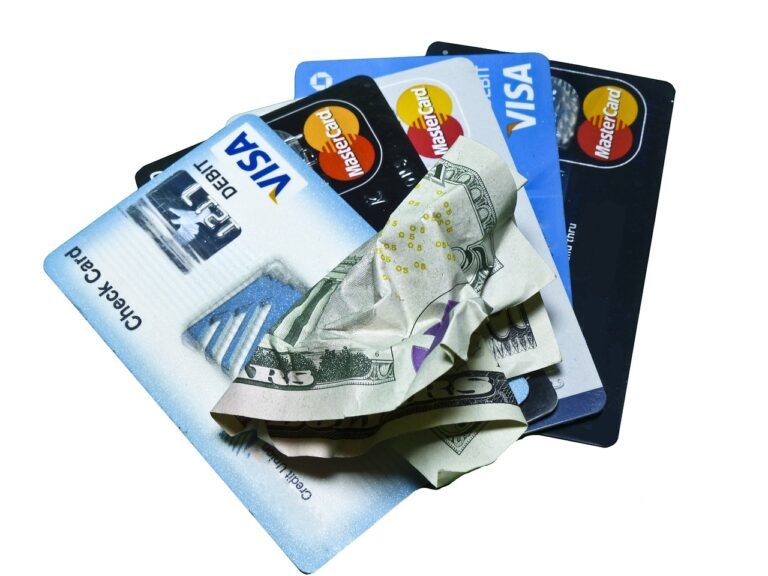
How travel credit cards work and How To Use Them Wisely
The Basics of Travel Credit Cards: How They Work and How To Use Them Wisely Photo by TechPhotoGal on…
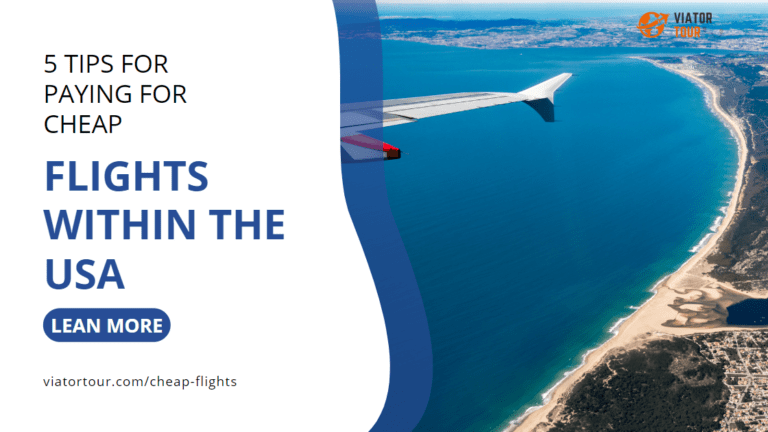
5 Tips for Paying for Cheap Flights Within the USA
Many travelers see domestic flights as something that is out of reach. After all, who wants to pay for…
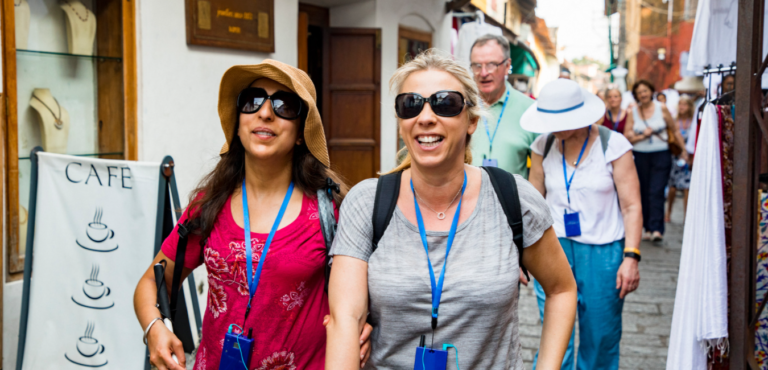
My Daily Travel Blog To Inspire And Get You Motivated!
The joy of traveling knows that you can go anywhere and everywhere — as long as you have the…
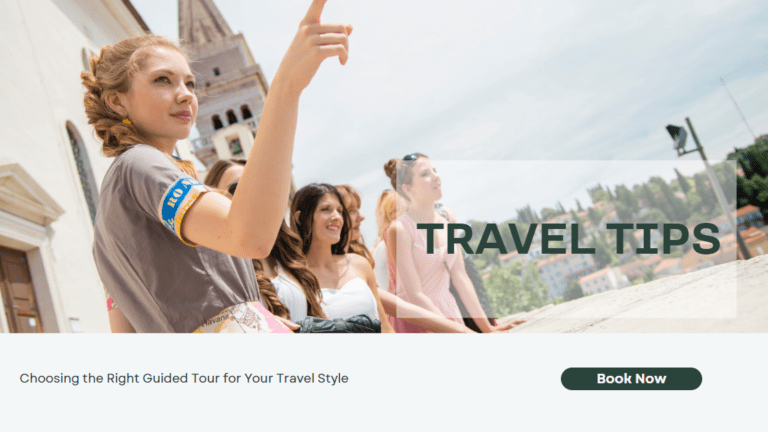
Choosing the Right Guided Tour for Your Travel Style
Step-by-Step Guide: How to Choose the Right Guided Tour for You When choosing a guided tour, you must consider…

Is it Cheaper to Pre-Book Excursions? Tips for Cost-Effective Travel
Traveling to different destinations can be a great way to explore new cultures, meet new people, and experience unforgettable…

Welcome to Lake
Discover places to stay and unique experiences around the world.
- How It Works
Home - Blog - How to Make Tour Packages: Your Step-by-Step Guide
How to Make Tour Packages: Your Step-by-Step Guide

David Ciccarelli
January 19, 2024
In this article
Get started.

In today’s digital world, mastering how to make tour packages has become fundamental for tour operators seeking to grow their business. Recognizing the shift towards online bookings, offering an array of compelling tour packages enables potential guests to weigh their options effortlessly, seeking out the best experiences that align with their interests and budget. Tour packages that provide convenience and value not only stand out in the crowded market but also pave the way for stronger revenue streams and memorable experiences for your clientele.
Understanding what to include in tour packages can be daunting, but with a systematic approach, you can assemble offers that guests find irresistible. Whether it’s a tranquil getaway or an adventure-packed excursion, the right combination of elements in your tour package can make the decision-making process a breeze for travelers, resulting in satisfied customers and repeat business for you.
How to Make Tour Packages: Crafting Exceptional Experiences
Wondering how to elevate your travel offerings? Maybe you’ve pondered what makes some tour packages stand out in a crowded market. Good news, your quest ends here!
- Online Bookings – Hassle-free, secure reservation at your fingertips.
- Flexible Pricing – Deals that adapt to budgets and seasons .
- Outstanding Support – We’re here for you, every step of the way.
Remember, the ultimate tour experience is just a click away. Ready to transform your travel game?
Identifying Your Tour Package Audience
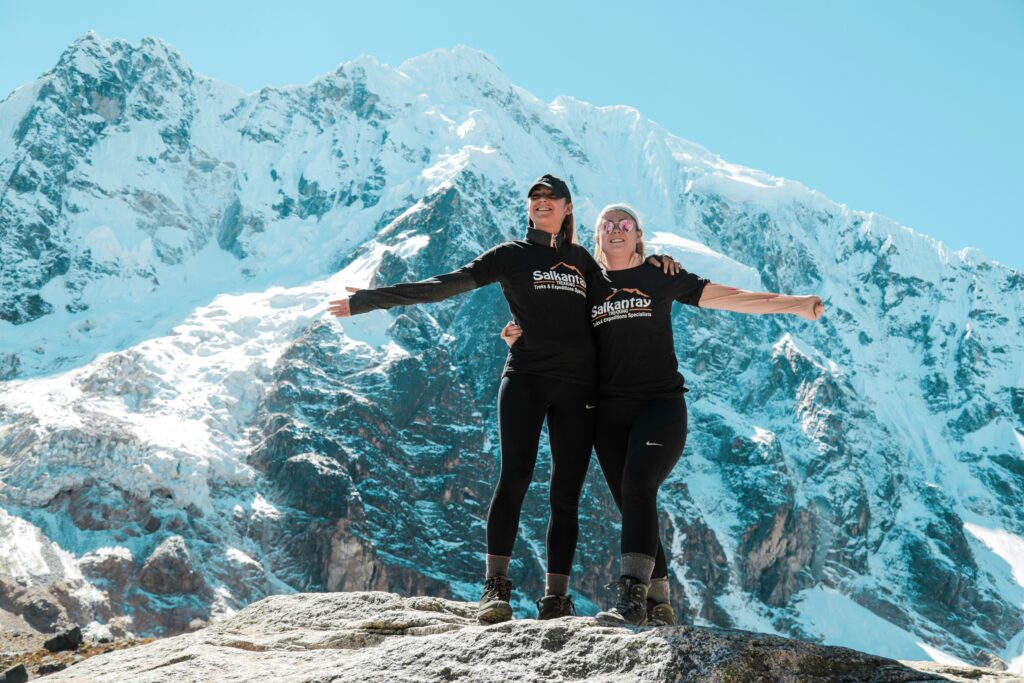
When forming tour packages, it’s crucial to consider who your offer will attract. Are you targeting:
- Adventure enthusiasts who crave excitement?
- Cultural aficionados in pursuit of enriching experiences?
- Couples on a romantic getaway?
- Individuals seeking the luxury of high-end travel?
- The older demographic preferring relaxed travel?
- Lone voyagers on a quest for solitude?
- Families with young children requiring kid-friendly activities?
Essentials of Tour Packages
When planning your getaway , what features do you expect a tour package to include? A powerful tour offering isn’t just about the destinations; it’s about forging a personal connection, ensuring that you feel the value and the excitement long before the journey begins.
Consider these key elements:
- Age Suitability : Is this adventure tailored for you or your family’s age group?
- Value : Does the pricing reflect the experiences offered, giving you the best bang for your buck?
- Accommodations : What type of lodging is included, if any? Comfort? Luxury?
- Duration : How many days of pure bliss or heart – pounding adventure can you expect?
- Activities & Partners : Are you looking for a single activity or a melange of experiences? Are respected companies involved?
- Tour Type : Are there options for the thrill-seeker, history buff, or family-friendly explorer?
The Importance of a Package Tour
Ever felt like you need a vacation from planning a vacation? Package tours swoop in as the hero, offering the sweet relief of convenience. Imagine simply showing up, with transportation, accommodations , and meals all set. Switch to vacation mode quicker, without the nitty-gritty of travel planning.
Why do travelers adore package tours? Here’s the scoop:
- Time Saver: No more endless searching for hotels or comparing flight prices. More time for you, less for logistics.
- All-Inclusive Experience: From your comfy hotel bed to that sunset cruise, it’s all wrapped up in one neat bundle.
- Increased Value: Worry less about costs adding up. The overall value of a package often outweighs individual bookings.
- Reduced Cancellations: Commit to fun! Secured plans mean you’re less likely to back out last minute.
- Community Vibes: Booking packages that partner with local businesses can inject a feel-good factor into your trip.
Remember, a calculated package deal can translate to significant savings for you while simultaneously lining the pockets of tourism businesses with healthy profits. It’s a win-win in the world of travel. Ready to pack your bags yet?
Key Elements of a Packaged Tour
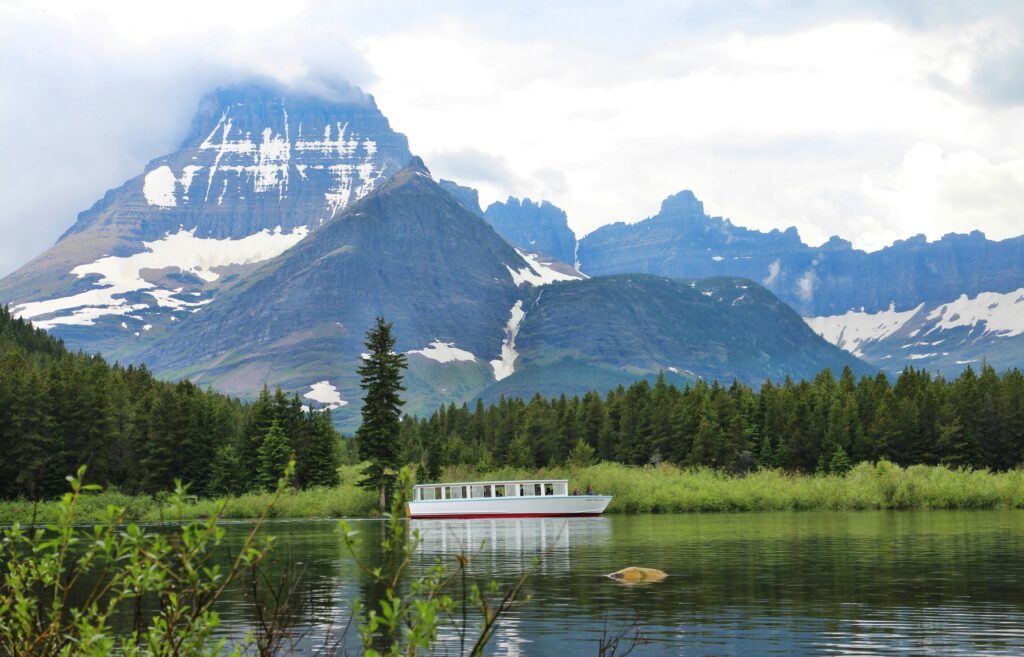
- Duration & Schedule : Your adventure, lasting from a day trip to extended stays , will have a well-defined timeline.
- Transportation & Accommodation : From flights to coaches, and hotels to unique lodgings, your journey’s comfort and convenience are considered.
- Guided or Self-Explored : Choose between having a knowledgeable guide or discovering the sights at your own pace.
- Included Activities : Adrenaline-pumping sports, tranquil cultural experiences, and exclusive events await.
- Group Size : Whether it’s cozy small groups or larger gatherings, your travel package adapts.
- Equipment & Extras : Necessary gear and potential add-ons enhance your experience without the hassle.
- Insurance Options : Ensure peace of mind with optional travel insurance for those ‘just in case’ moments.
Remember, ongoing offers and discounts can sweeten the deal of your travel package.
Crafting Your Ideal Tour Experience: A Guided Framework
Scouting the tour landscape.
Begin your tour-creating journey by examining the offerings within your industry and locality. To craft a tour that resonates with your target audience, consider:
- The unique aspects of your specific area and expertise.
- How your tour can differentiate itself within the marketplace.
Knowing what your competitors are doing is crucial; ensure your offerings incorporate distinctive elements that elevate your tour above others.
Timing is Everything
Designing a tour requires careful planning around duration and scheduling, knowing the ebb and flow of your business operations. Consider:
- The frequency of departures.
- The feasible duration of the tour for an enjoyable guest experience.
Every aspect of your tour’s timing should contribute to both your guests’ satisfaction and your business’s viability.
Tailoring the Tour Experience
Give your guests autonomy with a map and let them personalize the trip with optional add-ons. The customizations could include:
- Exclusive access to particular attractions.
- Tailored equipment rentals for a seamless adventure.
Empowering guests to tailor their experience can heighten the appeal of your tour package.
Price Point Strategies
Attracting groups through discounted rates could be a wise approach. When setting your prices, consider:
- Pricing structures that work best for your business model.
- Offering incentives for larger group bookings to maximize profitability.
Well-thought-out pricing can be the key to a successful tour package that appeals to a wide audience.
Visual Vividness
Use compelling photos and videos to showcase the allure of your tour packages. Keep in mind:
- Including images that allow potential guests to envision themselves on the tour.
- Highlighting exhilarating moments and picturesque scenery in your promotional material.
Visuals play a pivotal role in captivating your audience and can significantly boost your marketing efforts.
Collaborative Local Alliances
Partnering with other local operators can broaden your package’s appeal. Integrating complimentary activities offers your guests:
- Added convenience.
- A richer, more diverse travel experience.
These alliances not only benefit the guest but can also generate repeat business for your enterprise.
Amplifying Your Tours
Let the unique selling points of your offerings shine in your promotional efforts. Aim to:
- Emphasize the unique experiences only your tour package can provide.
- Convey the value and convenience of opting for a pre-arranged package over separate bookings.
Effective promotion involves highlighting the unique benefits that come with your tour package, contributing to an effortless and memorable vacation for your guests.
Remember, as a tour operator, you have the power to shape extraordinary travel memories. Each step you take to refine your tour package bolsters your guests’ experience, ensuring that each adventure is not just a trip but a story worth telling.
Finding Strategic Partners to Expand Your Tour Offerings
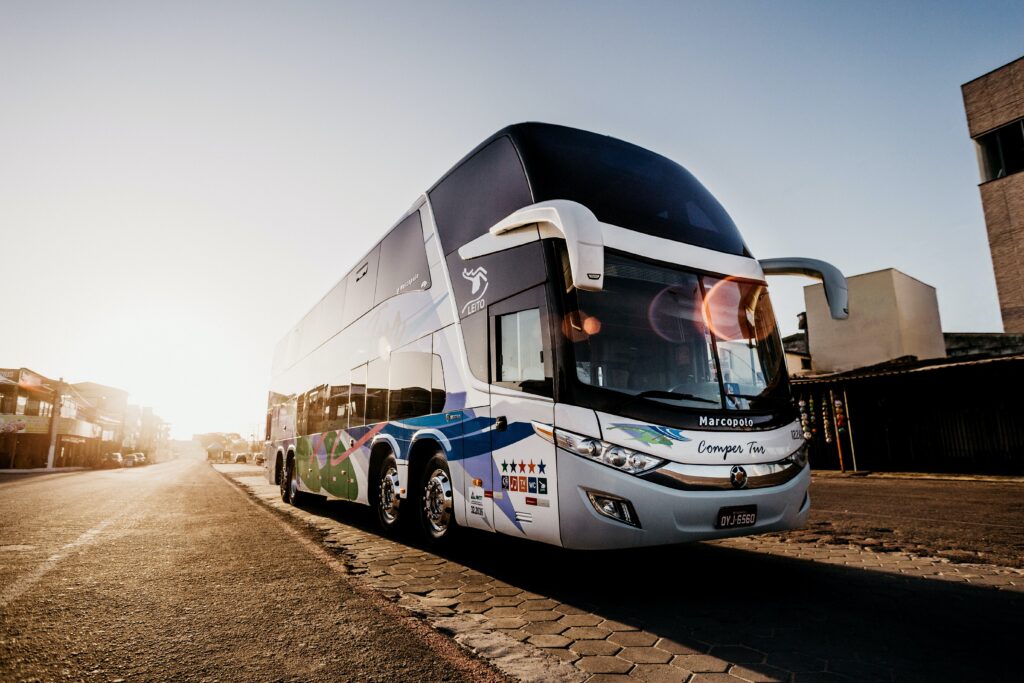
Looking to broaden the scope of your tour packages? Consider joining forces with local accommodations, top-notch restaurants, and other experience providers who align with your business ethos. Let’s say you run a travel agency and want to offer an all-encompassing experience – imagine pairing your thrilling city tours with a cozy bed-and-breakfast and the finest dining in town.
- Travel Agents : Tap into their network and offer your packages to a wider audience.
- Online Travel Agents (OTAs) : Increase your digital footprint and customer reach.
- Local Businesses : Collaborate for cross-promotion; think hotels offering your tour brochures in their lobbies.
- Wholesalers : They can package your tours with other services for a greater value proposition.
Final Thoughts
Crafting tour packages that resonate with travelers.
If you’re keen on curating tour packages that truly resonate with what travelers desire, consider your approach to content marketing . What makes your offerings gleam against a backdrop of options? It’s about more than presenting tours; it’s about narrating an experience that aligns with your audience’s travel fantasies.
Promotion must-haves :
- Regular website updates with engaging content
- Strategic marketing tools & campaigns
- SEO optimization to appear on Google search results
Sales Boosters :
- An easy-to-navigate booking system
- Package variations to encourage repeat bookings
Discover Versatile Reservation Tools
Ever found yourself swamped with managing bookings and wish there was a simpler way? Meet today’s top-tier online booking systems that are winning over businesses with their ease of use and seamless integration capabilities.
- Instant Efficiency : With a click, manage your reservations.
- Streamlined Services : Simplifies your booking process , effortlessly.
- Flexible Features : Adapts to your unique business needs.
Statistics show that businesses utilizing advanced reservation systems see a significant increase in bookings , often by as much as 20%.
Essential Components for a Captivating Tour Itinerary
Key items to include in your tour itinerary.
To capture the interest of travelers, your tour itinerary should be comprehensive and engaging. Essential elements include:
- Compelling Descriptions : Paint a vivid picture of the destinations to stir excitement.
- Varied Activities : Cater to different interests with a mix of cultural, recreational, and relaxing options.
- Clear Timelines : Provide a well-structured timeline that outlines the daily schedule while allowing for some flexibility.
- Logistical Details : Include information on transportation, meeting points, and accommodation options.
Tactics for Effective Marketing of Travel Packages
Harness various marketing strategies to attract travelers:
- Leverage Social Proof : Display reviews and testimonials as evidence of satisfied customers.
- Engage Through Storytelling : Share stories and experiences from past travelers to build a connection.
- Utilize Visual Content : High-quality images and videos can be powerful in showcasing your packages.
Innovative Promotion Methods for Tour Packages
To reach a broader audience, get creative with your promotions:
- Collaborations : Team up with influencers or local businesses to tap into new networks.
- Exclusive Events : Host webinars or live Q&A sessions to engage potential customers.
- Contests and Giveaways : Encourage sharing and participation for increased visibility.
Constructing a Package Tour That Captivates
When designing your package tour, consider the following steps:
- Define Your Audience : Know who you are designing the tour for.
- Curate Unique Experiences : Differentiate your offering with unique experiences.
- Price Competitively : Position your pricing based on the value offered.
- Pay Attention to Detail : Every component, from meals to activity duration, adds value.
Building Stand-Out Packages in the Travel Market
Travel agents aiming to excel in the market should focus on:
- Personalization : Offer customizable options so clients can tailor their experience.
- Diverse Offerings : Appeal to various niches like adventure travel or eco-tourism.
- Professional Touch : Present the packages in a high-quality, informative brochure.
Calculating Tour Package Costs Effectively
When pricing your tour packages, be mindful of:
- All-Inclusive Costs : Consider all expenses from transportation to entry fees.
- Profit Margin : Set a margin that reflects the quality of the experience while remaining competitive.

administrator
David Ciccarelli, is the Founder and CEO of Lake. He is based in Toronto, Canada, and is an expert in management, business administration, strategy, product development, and customer experience. His educational achievements include the Owner President Management Program at Harvard Business School (2019-2022) and the QuantumShift Program at Ivey Business School in 2017, aimed at CEOs of growing businesses.
- Tour Packages
Related Posts

October 29, 2023
Preparing Your Vacation Rental for Emergency Situations
While not expected, emergency situations may arise at your vacation rental. As such,...
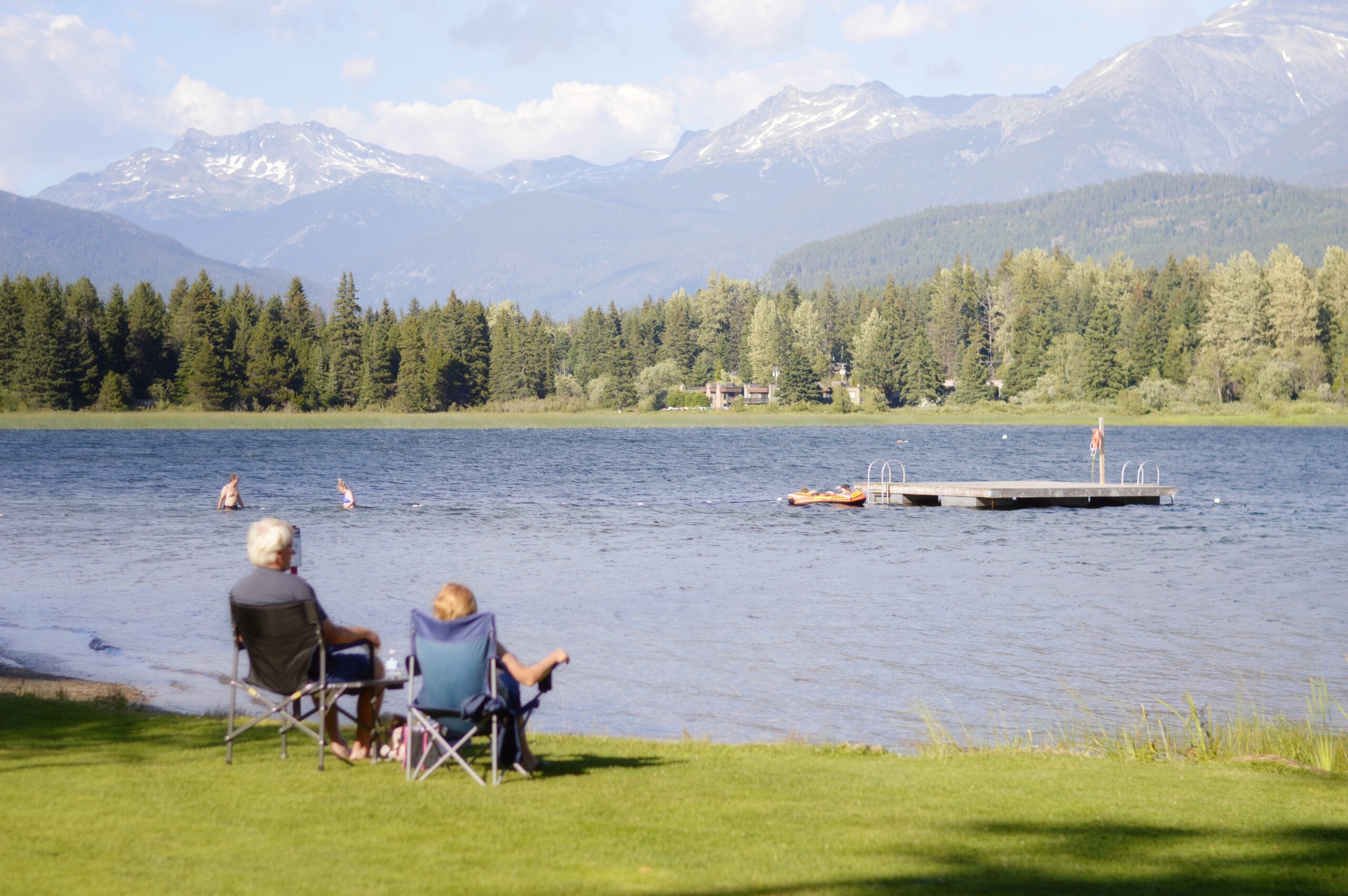
December 21, 2023
Vacation Rental Pricing Tools: Optimize Your Income with Smart Strategies
Striking the right balance with your Airbnb listing price can be a puzzling game. Are your...
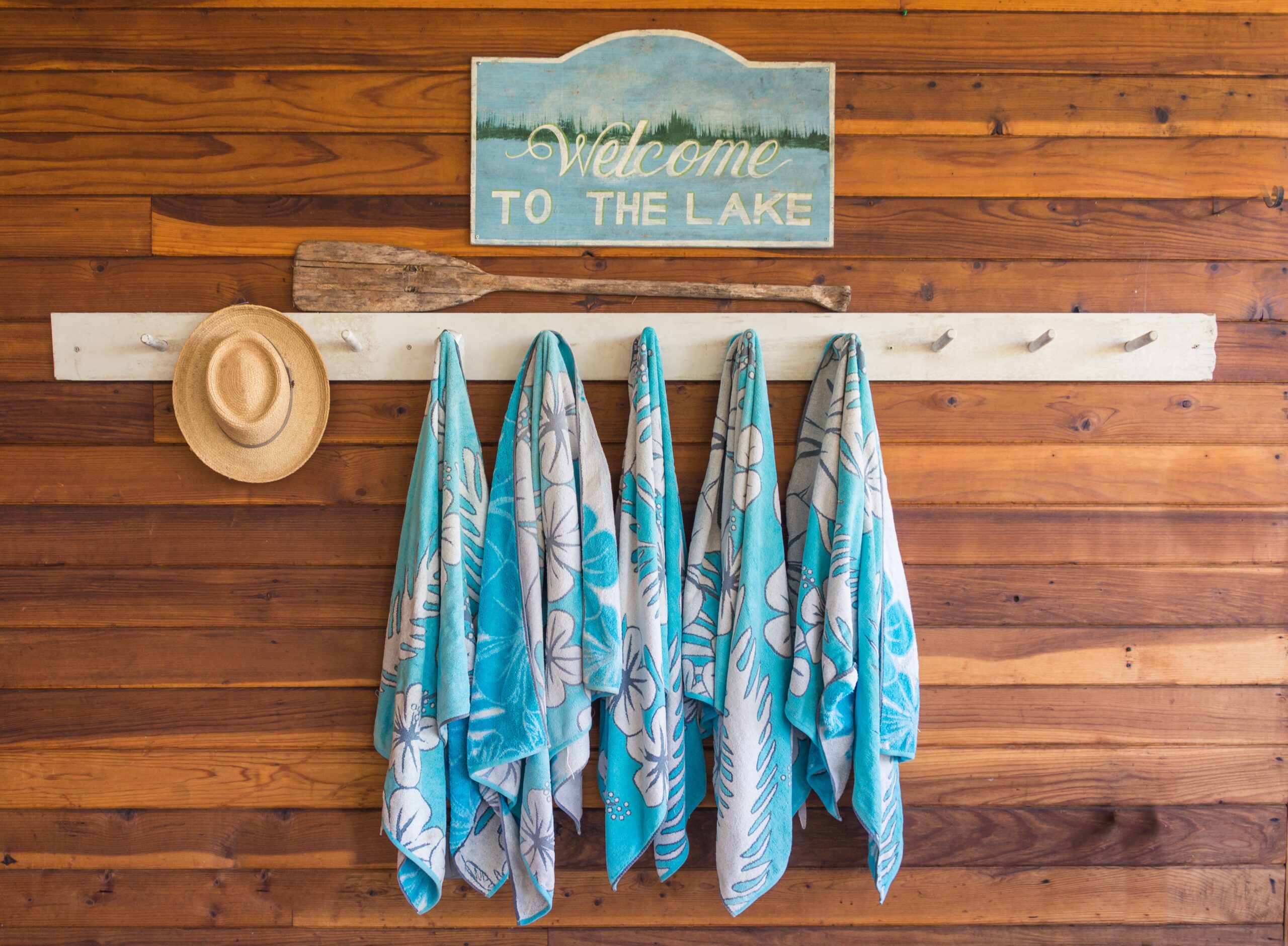
January 3, 2024
Vacation Rental Welcome Book: Crafting the Perfect Welcome for Guests
Thinking of hosting your lake house on Lake? Here is everything you need to know to create...
Don't have an account yet? Register
Already have an account? Sign In
Reset Password
Please enter your username or email address, you will receive a link to create a new password via email.
The Complete Guide to Building a Tour Package

Modern travelers expect a great travel experience while saving money. As a travel agent, you can exceed these expectations by offering personalized tour packages.
Why Create a Tour Package?
Tour packages allow you to combine more products and services into a single offering. Creating a customized tour package will increase your revenue, and your clients will get better value for money and a personalized travel experience. Unique tour packages can also make your travel business stand out from competitors. Find out more useful Tips for Increasing Sales in a Travel Agency.
5 Steps to Building a Tour Package
Unique and professional-looking tour packages are massively in demand. Every client will have their own needs and preferences, and travel agents need to be able to nimbly adjust their offerings accordingly. With the rise of personalized travel, a high-quality tour package builder is a must for every agent. Creating an individual tour package for each client can take substantial time and effort. A trip builder module simplifies the process, giving you more time to invest in growing your travel business. Learn how to build a high-value tour package with TripMatrix Software in 5 easy steps.
1. Identify the Customer’s Needs
The first and most crucial step is to identify the customer’s needs. If you get this right at the beginning, your tour package will need fewer adjustments later. Knowing your clients also gives you good pointers on what to focus on while researching. The key information to know about your clients:
- Number of travelers
- Budget range
- Duration of the trip
- Accommodation preferences
- Transportation and transfer needs
- Type of trip (family vacation, team building, romantic getaway, etc.)
Use the given information to establish a better relationship with your clients. Taking an individual approach and showing interest in their needs will signal that you care about them. You will also have to spend less time researching trip options with a more targeted approach. Understand the client’s needs and concentrate on building a customized tour package that will exceed their expectations.
2. Research Trip Options
After identifying the customer’s needs, the next step is researching the best trip options. Research is the most time-consuming activity for every travel agent, especially if you don’t have an established network of key partnerships within the travel industry. Even if you are already collaborating, you should always look for unique experiences to diversify your offer. Small travel agents can find it hard to connect with other businesses, but TripMatrix Marketplace allows you to easily collaborate with big and small service providers. Whether you are on a hunt for a themed guided tour, luxury hotel, or safe transportation option, you can find trusted new potential partners within TripMatrix Marketplace, which will provide a unique local experience.
3. Build a Trip and Create an Offer
Once you have picked out the best trip options, you are ready to build a trip and create an offer. Beforehand, make sure to upload your products and services. You can create and edit products and services effortlessly with TripMatrix Inventory Management; you only need to select the correct category (accommodation, transportation, experience, etc.), add images, and create descriptions. You can even pull images and descriptions directly from Google to save time. After you have selected transportation, accommodation, and activities for a tour package, start designing an in-depth trip plan. TripMatrix’s trip builder module enables tour agents to include a route planner and a full itinerary. Finally, add the price and profit margins for each service and product (visible only to you). Read more about using a TripMatrix Trip Builder in our blog Trip Planner Software for Travel Agencies.
4. Offer Modifications
Forget about downloading your offer in PDF documents, you can simply send all tour packages created in TripMatrix via a custom link. Clients can click on the route planner connected to Google Maps and scroll through the hotel photos, and an interactive itinerary will give them a better idea of their trip. In most cases, personalized tour packages demand more effort. The good news is that with TripMatrix trip builder, you can always modify your tour packages following clients’ feedback. Each product, service, and tour package is stored in the Cloud, so you won’t have to worry about losing any data. Communicate with the client in a direct chat and find out if there is room for improvement. Offer modifications can be done directly inside the itinerary, allowing prospects to see changes immediately. You can always update an existing offer if you have a client interested in a similar tour package. Each previous offer can be a starting point for a new client with similar needs.
5. Payment Processing and Commission Distribution
Once your client is satisfied with their personalized tour package, they can complete payment directly within the TripMatrix platform. TripMatrix’s high-quality online booking experience provides secure payment and also allows the travel agent to have access to each client’s payment processing. You can see the confirmation directly within the software when the client finalizes payment. If your client hasn’t completed their online booking, you can follow up to get more information. Since TripMatrix includes automated payment processing, commission distribution, and refunds, you can manage the whole payment process inside the platform.
Individualized tour packages are beneficial for both travel agents and travelers. While travel agents can increase revenue and establish strong partnerships, travelers can get a better value for money and get the most out of their travel experience. Before researching and building a tour package, it is crucial to identify your customer’s needs. Get to know your client; understanding them will make your part of the work easier. Also, showing interest in their needs will help you create better trips and improve customer experience. Research trip options and extend your offerings with TripMatrix Marketplace. Find partners to complete and upgrade your tour packages. After you create a tour package in the trip builder, you can easily make modifications. When your tour package is done, track payment within the platform. Want to start building professional-looking tour packages that will increase your revenue? Send us an inquiry and become a part of the TripMatrix community.
Recent posts

Streamline Your Travel Agency Operations with TripMatrix
In the bustling world of travel agencies, efficiency is key. The ability to seamlessly manage customers, craft detailed itineraries, oversee product [...]

Elevating Your Travel Agency with Smart Marketing and SaaS Solutions in 2024
In an era where the online travel industry is more competitive than ever, standing out requires more than just offering the best deals or exotic locat [...]

Effective Strategies for Managing Travel Agency Contacts and Accounts with TripMatrix
Effective contact and account management is crucial for maintaining a competitive edge in the highly competitive world of travel agencies. As the trav [...]

How to Create and Promote Amazing Tour Packages

Table of Contents
As a tour operator, finding new ways to improve your customers’ experience while also increasing profitability for your business should always be top of mind. A great way to attract more customers and increase your tour bookings is to offer tour packages. By creating and selling travel packages, you’re addressing the needs of a specific type of traveler, one who is looking for a fuller travel experience with the added benefits of convenience and savings.
Today we’ll be discussing the benefits of tour packages, how to effectively create and sell your own travel package, and how Rezgo’s tour packaging system can help.
What Are Tour Packages?
Tour packages are a combination of separate (but typically related) tourism products and services that are presented and sold as one. Customers pay for all the components of a tour package and receive details of their itinerary prior to travel. A typical tour package example is one that includes travel to and from the destination, accommodation, meal arrangements, and activities or excursions.
Tour Package Example
As with this example, when people think of tour packages, they often think of packages that include services from multiple vendors. Tour packages can, however, consist of offerings from a single tour provider. Rezgo’s tour packaging system is designed to help you create and promote travel packages of your own tour products, but also offer resellers the option to package services from multiple tour businesses as well.
What Are The Benefits Of Tour Packages?
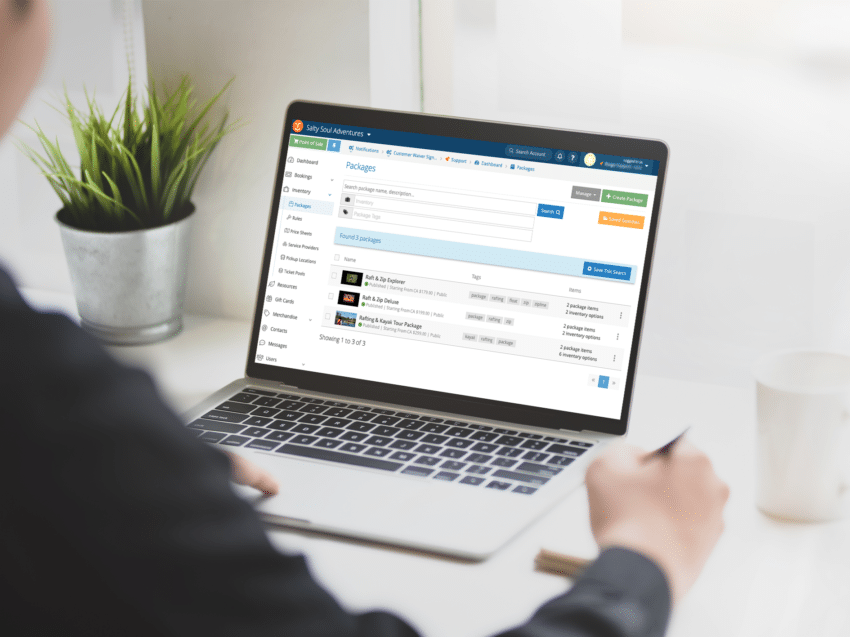
Opinions regarding the benefits of tour packages versus purchasing various travel components on your own vary with each traveller. To create and market the best tour package possible, it’s important to understand what customers are looking for in a travel package.
Benefits of Tour Packages
- Convenience – Purchasing a tour package that includes multiple services or experiences in one saves customers the time and energy needed to locate and research them individually. Travelers who prefer tour packages tend to like to avoid the work involved with booking each travel component separately.
- Cost Savings – It’s expected that customers enjoy cost savings when booking a tour package. Tour operators will often provide discounts or special rates for purchasing multiple tour products or services.
- Security / Reassurance – Booking a tour package put together by a tour operator and that has been vetted by other travelers provides customers with a sense of security and reassurance.
Equally important is to be aware of why some customers would prefer to plan their vacation on their own. Understanding the concerns and wants of these travelers can potentially help create a tour package that addresses their concerns and converts them into bookings.
Benefits of Planning Your Own Trip

- Flexibility – Planning a tour experience on your own provides some additional flexibility. Customers are not bound to any constraints that may be present when booking a tour package.
- Options – Sometimes not all travel or tour options are presented when browsing tour packages. Customers may feel like their options are being artificially limited by the tour operator’s preferences or reach.
- Individualized Experience – Customers who want to customize their trip and have an authentic experience tend to avoid booking tour packages over concerns of receiving a limited, tourist-centric experience.
What Kind Of Customers Enjoy Tour Packages?
Now that we’ve gone through the benefits of tour packages versus the benefits of planning a trip on your own, we can begin to understand the kinds of customers who enjoy tour packages. Above all, travellers drawn to trip packages are looking for the convenience and cost savings associated with them. They aren’t concerned about customizing every detail of their trip and are happy to entrust their experience to the tour operator or company. Tour package customers are attracted to the ease and hassle-free booking process and want the best deal possible.
Creating A Great Tour Package

Taking what we know about our audience and what they look for when purchasing a tour package, we can implement strategies that will help us create fantastic trip packages of our own. With Rezgo’s tour packaging system, you’re able to group or combine various tour products together and offer them at a discount that is both attractive to the customer and profitable for your business. What you choose to group and how you decide to package them is up to you. You have the freedom to package travel arrangements to and from your destination, pair up your activities with equipment rentals, or even group multiple experiences together for a multi-day excursion. Need some inspiration for your tour packages? Check out these innovative tourism business ideas !
Remember, customers browsing travel packages for their trip are looking for convenience and freedom from having to handle all the little details. Whatever you choose to include in your tour package, make sure that you’re making it as streamlined and stress-free an experience as possible. Include as many relevant details in your tour package descriptions and preemptively answer questions that your customers might have regarding what is or isn’t included. Highlight the benefits of your tour package when compared to an individual tour and include details about discounts or deals. Customers should feel like once they book your trip package, all that’s left for them to do is enjoy their amazing vacation.
How to Market and Promote Your Tour Package

While there are definitely a few different factors to consider when marketing and promoting tour packages versus an individual tour, the fundamentals remain the same. To successfully market your tour package you need to first understand your target market or audience. That is, who are you selling your tour package to? You can then begin to build a marketing strategy aligned with the needs and wants of your target audience. As mentioned earlier, travellers expect discounts when booking travel packages so be sure to carefully consider your tour package costing so as to provide a great deal for your customer while keeping your business profitable and sustainable.
For an in-depth look at effectively selling your tour package, we suggest checking out our post on how to promote tour packages online and familiarising yourself with the 7 Ps of travel and tourism marketing .
Closing Thoughts
Tour packages are a great way to combine and sell your tour products and services in a way that is attractive to your customers and profitable to your business. By understanding the benefits of a tour package over individually booking tours and addressing the needs of your target audience, you’re able to effectively create, market, and promote your own travel packages.
We’re excited for you to try out our new tour packaging system and look forward to seeing all the amazing tour packages you build for your business!
What should be included in tour packages?
Include transportation , accommodations, meals, guided tours, and activities. Detail what’s covered and any extra costs.
What is the difference between a tour package and an itinerary?
A tour package bundles services for one price. An itinerary outlines trip details but doesn’t include bookings.
Should my tour package have add-ons?
Yes, offer add-ons for customization. It enhances the experience and meets diverse traveller preferences.

Written By | Edward Nieh
Edward Nieh is a freelance writer and copy editor working across multiple mediums for clients from various industries. He has a degree in creative writing with a focus on screenwriting for feature films.
Previous Article Private tours are a growing trend in 2024. Are you ready?
Next Article 10 Creative Ways to Expand Your Tour Business (Without Breaking the Bank)

Related Posts

Articles , Increase Online Bookings , Tourism Trends
17 innovative tourism business ideas and trends for 2024.
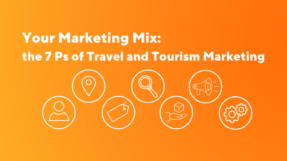
Articles , Increase Online Bookings , Marketing Strategies
Your marketing mix: the 7 ps of travel and tourism marketing.
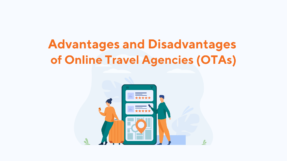
Articles , Increase Online Bookings , Tourism Best Practices
Advantages and disadvantages of online travel agencies (otas), search the blog.
- All Categories
- Increase Online Bookings
Most Popular Articles
- Your Marketing Mix: the 7 Ps of Travel and Tourism Marketing 107 views
- 17 Innovative Tourism Business Ideas and Trends for 2024 103 views
- Advantages and Disadvantages of Online Travel Agencies (OTAs) 23 views
- How to Create and Promote Amazing Tour Packages 13 views
- How to Create a Business Plan for Your Tour or Travel Company 9 views
I have read and agree to the Rezgo Privacy Policy
GET STARTED
Sign-up for a free demo.
Lorem ipsum dolor sit amet, consectetur adipiscing elit, sed do eiusmo tempor incididunt ut labore et dolore magna aliqua.
Schedule A Demo
How to Make Tour Packages That Sell Themselves
By Erick Tomaliwan
Share this article:
- Facebook icon
- LinkedIn icon
- Twitter icon

As experience providers, learning how to make tour packages is key for running a thriving tour business.
As more customers move towards online bookings, creating a variety of desirable tour packages gives future guests a way to compare a variety of options with ease.
For many travelers, being able to save time and money with different tour packages is high on their list of priorities. With an emphasis on adding value, tour packages can lead to increased revenue and a remarkable experience for guests.
By packaging tours and doing the bulk of the work for your guests, you can provide a high-value experience. As a tour operator, it can be tough to figure out what to include in your different tour offerings, so we’ve created a step-by-step process to building and creating irresistible tour packages.

Create unbeatable tour packages with Checkfront!
Online bookings. Flexible pricing. Outstanding support.
Determine who you’re creating a tour package for
As travelers explore options online, they’ll find themselves drawn to certain experiences based on details, images and previous guest reviews of each tour.
In looking at travel trends, this tourism article mentions how some guests might be seeking quality time with friends and family, while others might be highly motivated for adventure travel or the serenity of a solo escape.
When brainstorming options for a tour package, ask yourself who you’re looking to connect with. Is your tour package geared towards:
- Adventure-seekers?
- Culturally-motivated travelers?
- Honeymooning couples
- Luxurious travelers?
- Mature travelers?
- Solo travelers
- Young families
What guests expect to see in a tour package
Your tour package pitch should speak to the customers’ travel desires. If you can create an emotional connection to your offer, you’re off to the races.
Make it easy for a website visitor to identify if an experience is for them based on your tour description. To further outline your tour package offer, consider these points:
- Cost / Budget Estimate per guest/booking
- Is accommodation covered? If so, what type?
- How long will an experience last?
- Are there multiple activities in this package or multiple companies?
- Tour type (kid-friendly, adventurous, overnight, multi-day)?
The importance of a package tour
The importance of a package tour is how it gives guests peace of mind knowing that the majority, if not all — of their trip is being looked after by a professional. This is why guests will pay more for a tour package because the added benefit of booking a tour package is how much time a guest can save.
Take multi-day tours for example — where transportation, lodging and meals are provided, meaning all the guest has to do is show up! Most travelers appreciate having all of the information and activities laid out for them because it means they can shift into vacation mode that much faster.
Packages extending over multiple days offer more value when guests start to consider the logistics of transportation, food and value-added activities. Most travelers will pay extra for the convenience of someone else looking after the less glamorous and logistical parts of travel.
Another perk is that when guests secure a tour package, there is a sense of commitment and therefore, they may be less likely to cancel their plans. Packaging your tours with fellow activity and tour providers creates a greater sense of community while making it easier for you to increase revenue and profits.

Components of a standard packaged tour
Define what it is you’re going to provide for guests, including:
- Activities offered
- A base number of guests for the tour to go ahead
- Whether additional equipment or rentals are included
- Whether transportation is included
- Duration of the booking
- Whether it’s self-guided or lead by a tour guide
Here’s a step-by-step process for building a tour package
What are guests going to be looking for? A tour package that provides them with the most value and minimizes how much work they have to do. Be the solution for their travel desires with a thoughtfully curated tour package offer. Here are 5 steps to creating a desirable tour package:
1. Research similar tours
When it comes to starting a tour business from scratch, you’ll want to see what else is in your industry and geographic area. Base your tour package ideas on the interests of your target market and what you think will sell well given your area of expertise, competition and location.
Most tour operators will do some preliminary research and have an understanding of competitors in their immediate market. So as guests evaluate their options, assume they will also be considering fellow tour operators in your area. Consider what you can offer that will allow you to stand out from the competition, including different timing, customizable value-adds and even an option to include a meal as part of the tour.
2. Figure out timing
When creating your tours, you’ll want to take duration, departure times and tour frequency into account to make sure it’s going to be sustainable and profitable for your tour business.
Will your tour business operate from one location or can guests receive a delivery as part of their tour package for the activity they choose?
3. Customize the tour
List activities or attractions you’d like to include in the tour package. Give guests a map to go along with their tour so they can feel independent.
Offering add-ons gives guests the option to customize tour packages. You might include way-finding, routes or rental equipment or source from another local activity provider.
4. Decide on pricing
To incentivize people to book in groups, you can try offering group discounts based on a certain number of guests. This works especially well for guests to book with people they know and lets customers take advantage of group pricing.
You can land on pricing per guest or per booking, depending on what works best for your tour business. Some companies operate with a minimum guest amount to cover their bottom line, with every additional guest leading to more profits.

5. Use images
Be sure to include photos and videos to help sell your tour packages. If you can structure your package details to include all of the relevant information a potential guest would need to know about prior to booking, you make it easy for them to book.
Publish your tours with exciting photos of guests enjoying the experience and the scenery a future visitor might expect to experience. Photos allow guests to visualize themselves doing the activity, making photos essential in your travel marketing efforts.
In addition, encourage website visitors to read reviews and explore user-generated content so future guests can see how other travelers’ experiences might reflect their own.
6. Explore local partnership opportunities
You may find yourself evaluating whether to partner with fellow tour operators offering a complimentary activity.
Book their tour to see if it’s in line with what you think your guests would enjoy. For example, if you operate a bicycle rental, perhaps you can connect with a local vineyard to see if you can offer guided tours and joint tastings.
For guests, having multiple activities and tours available at their fingertips is worth paying more for since they won’t have to spend hours putting it all together themselves.
Local tour operators can offer so much more than online travel agents (OTA’s) as far as insight and in delivering a personalized experience. An added benefit of building tour packages with partners is how these relationships can drive more repeat bookings .
7. Promote your tours
When creating tour packages, lead with your unique selling point(s). Remember researching how to make your tour package different? Place this front and center in your marketing to set yourself apart from the competition.
You’ll want to build out packages and partnerships that clearly display the higher value experience you offer. The distinct advantage of having a tour package is the time-saving benefit for travelers. Use language that reflects the perks a guest can expect when they choose to book packages over individual activities.
For guests, having a vacation package designed for them is worth paying more for, so speak to the convenience and ease of booking a tour in your promotional efforts.
As a tour operator, you can improve a guest’s experience by implementing multiple touchpoints throughout the booking journey and encourage feedback to continually make your package offers better.
Here are a few examples of how to pique travelers’ interest:
- Providing the best viewpoint from [location]
- Looking for a perfect sunset paddle?
- Seeking a spectacular trail ride?
- We offer the most breathtaking helicopter tour in the [geographic location]
- Spot Black bears and bald eagles on this Wildlife viewing tour
- Explore the magic of scuba diving in the [region]
Where to find partners to sell more tour packages
If you’re looking to partner with fellow experience providers, the best approach is to explore accommodation, experience providers and restaurant establishments in your area.
Explore whether they share a similar philosophy when it comes to running their business and connect with them in person, if possible.
Take Adventure Hub , for example, they have a few different tour operators in the Kananaskis Valley offering paddles, hiking, trail rides and distillery tastings. For a guest visiting the area, this gives them access to a variety of activities all in one place, heightening the chance they’ll book more.

How to create a tour package using Checkfront
As a tour operator, your job is to paint a picture of possibility for your guests. Travelers will look to you for suggestions and ideas of how to maximize their experience, and this is where creating tour packages make it easy for guests to want to book.
If you’re looking for more insight on creating tour packages in Checkfront, follow these steps outlined in our Knowledge Base. The Package feature encourages guests to create a bespoke tour package. In doing so, it further incentivizes them to book more and save with attractive price points.

Final thoughts
Inspire travel dreams and appeal to your target audience in a way with the types of tour packages they might be looking for. Thoughtfully curated tour packages can help you to stand out from your competitors and can lead a successful tour business.
Be a resource for your tour guests. Offer a few different tour packages and reflect back after a season to see which ones were booked most often.
Highlight your values and what guests can expect if they choose to book with you — and be sure to fulfill that promise.
Looking to create desirable tour packages with a versatile booking system?

Take your business to the next level
Related articles.

How to write ATV tour descriptions that drive bookings (with examples)
Learn how to write ATV rental descriptions with SEO-ready language that help you sell more bookings
- Marketing Strategies

Easy & effective pricing tactics for activity and rental operators
Ever wondered why at the movie theatre you’re likely to opt for a Large Popcorn instead of a Small or…
Search Blog
Subscribe to our newsletter.
Get tips and strategies to grow your business and impress your guests.
Blog Categories
- Booking Management
- Business Tips
- Guest Experience
- Operator Highlights
Package, Tour or FIT: Defining the Packaged Travel Market
- ASTA Members save $200—log in to the ASTA Web site for details and to order.
- European , Financial , Global and Technology Edition subscribers save $200:

What is Open Access
An Open Access subscription provides company-wide access to the whole library of Phocuswright’s travel research and data visualization.
Curious? Contact our team to learn more:
What is open access+.
With Open Access+, your company gets access to Phocuswright's full travel research library and data visualization PLUS Special Project deliverables.
Provide your information and we'll contact you:
Curious contact our team to learn more:, more research insights.

Want to create or adapt books like this? Learn more about how Pressbooks supports open publishing practices.
Chapter 7. Travel Services
7.1 Components of Travel Services
The travel services sector helps travellers arrange and reserve their vacation or business trips (StatsCan, 2018). This sector is made up of businesses and organizations that work in a coordinated effort to provide travellers with seamless arrangements to maximize their travel experience. Go2HR describes travel services experiences and employment opportunities as follows:
Within this sector, you have the flexibility of working in various capacities with event and conference planning organizations, travel companies and organizations, as well as associations, government agencies and companies that specialize in serving the needs of the tourism sector as a whole. (go2HR, Essential Tips – Travel Services, 2020)
Before we move on, let’s explore the term travel services a little more. As detailed in Chapter 1 , Canada, the United States, and Mexico have used the NAICS guidelines, which define the tourism industry as consisting of transportation, accommodation, food and beverage, recreation and entertainment, and travel services (Tourism HR Canada, 2020). These five sectors are defined and further detailed in B.C. by the B.C. government (BC Government, 2014) and go2HR on their website (go2HR, Career Explorer, 2020).
For many years, however, the tourism industry was classified into eight sectors: accommodations, adventure and recreation, attractions, events and conferences, food and beverage, tourism services, transportation, and travel trade (Yukon Department of Tourism and Culture, 2020; go2HR, 2020, What is Tourism? – Travel Services).
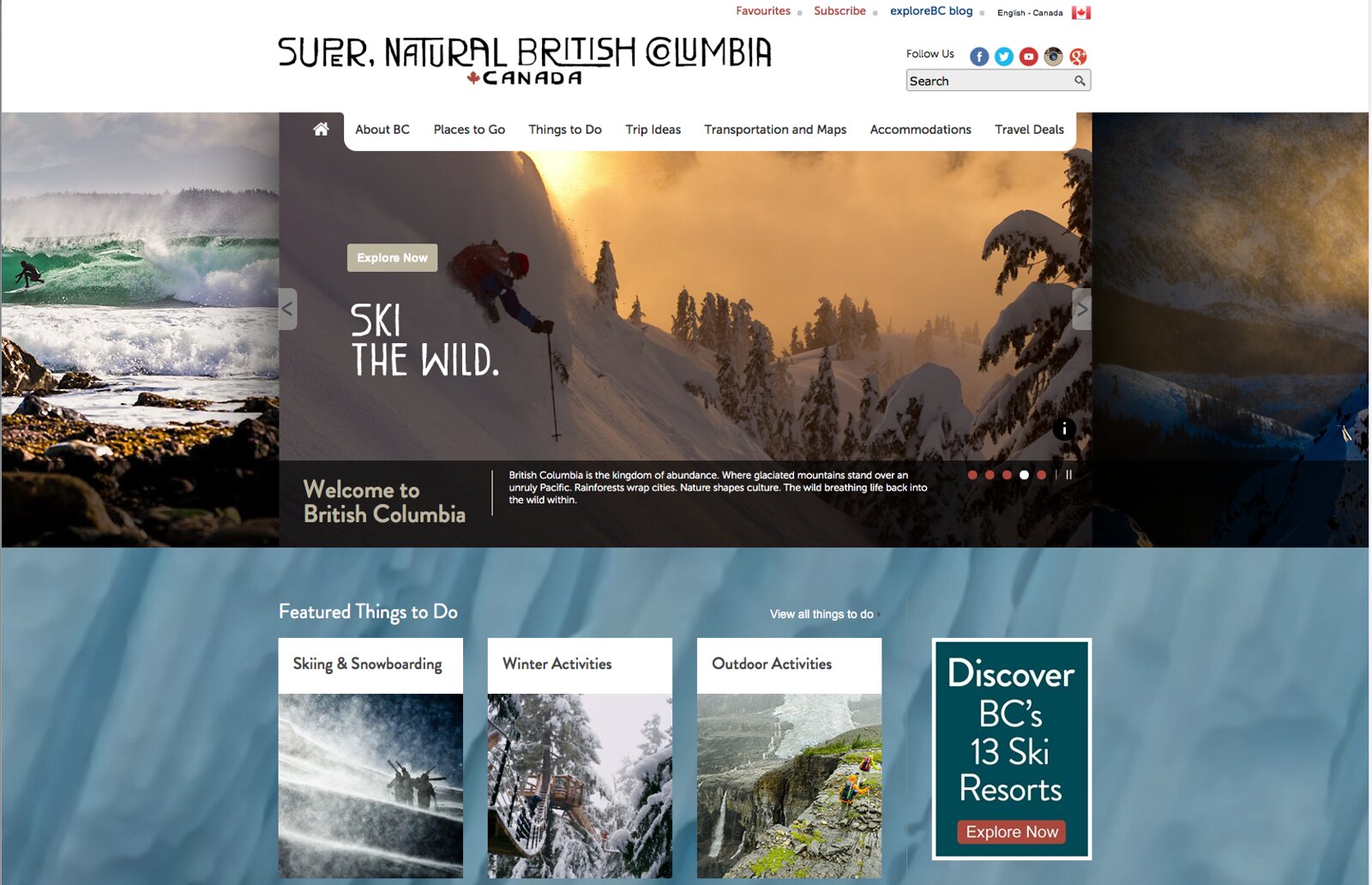
Tourism services support industry development and the delivery of guest experiences, and some of these are missing from the NAICS classification. To ensure you have a complete picture of the tourism industry in BC, this chapter will cover both the NAICS travel services activities and some additional tourism services.
First, we’ll review the components of travel services as identified under NAICS, as well as exploring popular careers within:
- Travel agencies (brick and mortar)
- Online Travel Agencies/OTA
- Tour operators
- Destination marketing organizations (DMOs)
Other Organizations
Following these definitions and descriptions, we’ll take a look at some other support functions that fall under tourism services. These include sector organizations, tourism and hospitality human resources organizations, training providers, educational institutions, government branches and ministries, economic development and city planning offices, and consultants.
Finally, we’ll look at issues and trends in travel services, both at home, and abroad.
While the application of travel services functions are structured somewhat differently around the world, there are a few core types of travel services in every destination. Essentially, travel services are those processes used by guests to book components of their trip. Let’s explore these services in more detail.
Travel Agencies
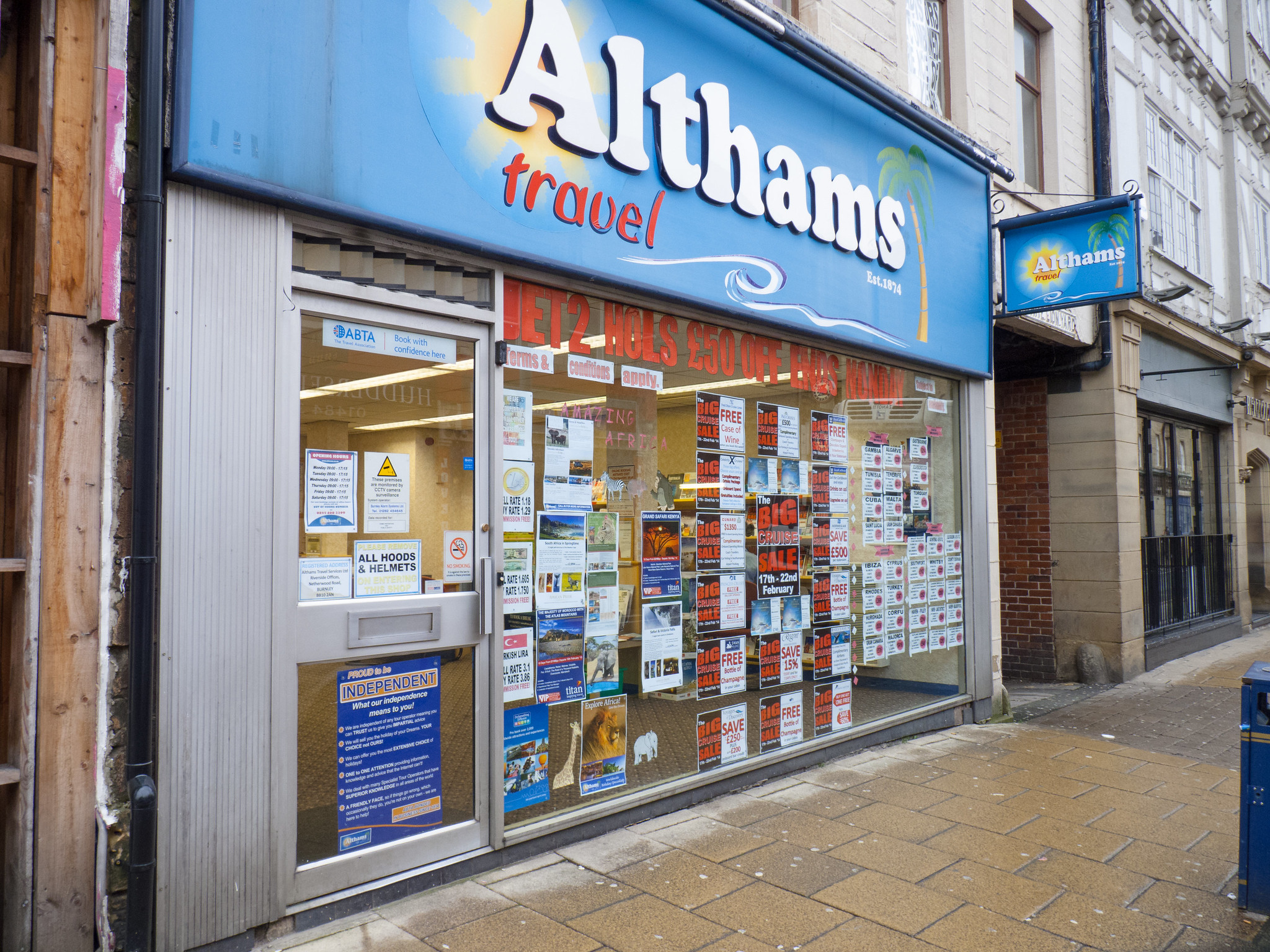
A travel agency is a business that operates as the intermediary between the travel industry (supplier) and the traveller (purchaser). Part of the role of the travel agency is to market prepackaged travel tours and holidays to potential travellers. The agency can further function as a broker between the traveller and hotels, car rentals, and tour companies (Goeldner & Ritchie, 2003). Travel agencies can be small and privately owned or part of a larger entity.
A travel agent is the direct point of contact for a traveller who is researching and intending to purchase packages and experiences through an agency. Travel agents can specialize in certain types of travel including specific destinations; outdoor adventures; and backpacking, rail, cruise, cycling, or culinary tours, to name a few. These specializations can help travellers when they require advice about their trips. Some travel agents operate at a fixed address and others offer services both online and at a bricks-and-mortar location. Travellers are then able to have face-to-face conversations with their agents and also reach them by phone or by email. To promote professionalism within the travel industry, travel counsellors can apply for a specialized diploma or certificate in travel from ACTA (ACTA, 2020a; go2HR, 2020a).
Today, travellers have the option of researching and booking everything they need online without the help of a travel agent. As technology and the internet are increasingly being used to market destinations, people can now choose to book tours with a particular agency or agent, or they can be identified as seeking Domestic Independent Travel (DIT) or Foreign Independent Travel (FIT) , by creating their own itineraries from a number of suppliers.
Online Travel Agents (OTAs)
Increasing numbers of travellers are turning to online travel agents (OTAs), companies that aggregate accommodations and transportation options and allow users to choose one or many components of their trip based on price or other incentives. Examples of OTAs include iTravel2000, Booking.com, Expedia.ca, Hotwire.com, and Kayak.com. OTAs continue to gain popularity with the travelers; in 2012, they reported online sales of almost $100 billion (Carey, Kang, & Zea, 2012) and almost triple that figure, upward of $278 billion, in 2013 ( The Economist , 2014).
In early 2015 Expedia purchased Travelocity for $280 million, merging two of the world’s largest travel websites. Expedia became the owner of Hotels.com, Hotwire, Egencia, and Travelocity brands, facing its major competition from Priceline (Alba, 2015).
Although OTAs can provide lower-cost travel options to travellers and the freedom to plan and reserve when they choose, they have posed challenges for the tourism industry and travel services infrastructure. As evidenced by the merger of Expedia and Travelocity, the majority of popular OTA sites are owned by just a few companies, causing some concern over lack of competition between brands. Additionally, many OTAs charge accommodation providers and operators a commission to be listed in their inventory system. Commission-based services, as applied by Kayak, Expedia, Hotwire, Hotels.com, and others, can have an impact on smaller operators who cannot afford to pay commissions for multiple online inventories (Carey, Kang & Zea, 2012). Being excluded from listings can decrease the marketing reach of the product to potential travellers, which is a challenge when many service providers in the tourism industry are small or medium-sized businesses with budgets to match.
While the industry and communities struggle to keep up with the changing dynamics of travel sales, travellers are adapting to this new world order. One of these adaptations is the ever-increasing use of mobile devices for travel booking. The Expedia Future of Travel Report found that 49% of travellers from the millennial generation (which includes those born between 1980 and 1999) use mobile devices to book travel (Expedia Inc., 2014), and these numbers are expected to continue to increase. Travel agencies are reacting by developing personalized features for digital travellers and mobile user platforms (ETC Digital, 2014). With the number of smartphone users expected to reach 1.75 billion in 2014 (CWT Travel Management Institute, 2014) these agencies must adapt as demand dictates.

A key feature of travel agencies’ (and to a growing extent transportation carriers) mobile services includes the ability to have up-to-date itinerary changes and information sent directly to consumers’ phones (Amadeus, 2014). By using mobile platforms that can develop customized, up-to-date travel itineraries for clients, agencies and operators are able to provide a personal touch, ideally increasing customer satisfaction rates.
Take a Closer Look: PATA — The Future of Travel is Personalisation at Scale
“The industry has changed monumentally over the past decade. The rise of meta-search websites and sharing economy services like Airbnb is giving travellers more control and choice than ever before. However, this is nothing compared to the changes that are on the horizon as technologies like mobile, AR, AI, and VR become mainstream.
One thing is certain; the pace of change is accelerating. Against this backdrop, the travel industry as a whole will need to fundamentally shift its focus to continuous innovation.” (PATA, 2019)
Despite the growth and demand for OTAs, brick and mortar travel agencies are still in demand by travellers (IBISWorld, 2019) as they have both an online presence and physical locations. The COVID-19 pandemic may see an increase in travellers relying on personal contact with brick and mortar travel agencies but at a distance through mail and phone.
Tour Operators
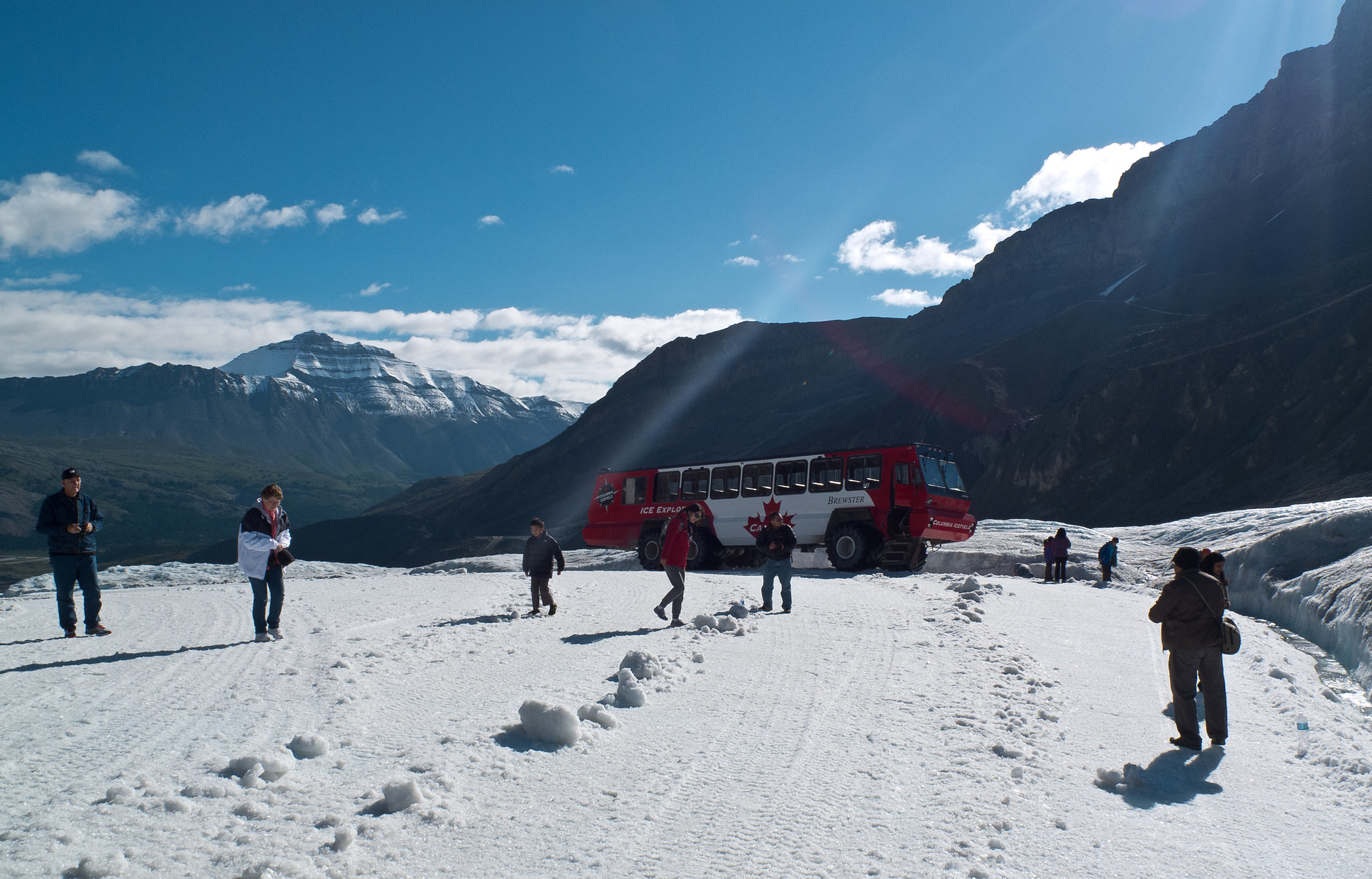
A tour operator packages all or most of the components of an offered trip and then sells them to the traveller. These packages can also be sold through retail outlets or travel agencies (CATO, 2020; Goeldner & Ritchie, 2003). Tour operators work closely with hotels, transportation providers, and attractions in order to purchase large volumes of each component and package these at a better rate than the traveller could if purchasing individually. Tour operators generally sell to the leisure market.
Inbound, Outbound, and Receptive Tour Operators
Tour operators may be inbound, outbound, or receptive:
- Inbound tour operators bring travellers into a country as a group or through individual tour packages (e.g., a package from China to visit Canada).
- Outbound tour operators work within a country to take travellers to other countries (e.g., a package from Canada to the United Kingdom).
- Receptive tour operators (RTOs) are not travel agents, and they do not operate the tours. They represent the various products of tourism suppliers to tour operators in other markets in a business-to-business (B2B) relationship. Receptive tour operators are key to selling packages to overseas markets (Destination BC, 2020) and creating awareness around possible product.
Destination Marketing Organizations
Destination marketing organizations (DMOs) include national tourism boards, state/provincial tourism offices, and community convention and visitor bureaus around the world. DMOs promote “the long-term development and marketing of a destination, focusing on convention sales, tourism marketing and service” (Destinations BC, 2020).
Spotlight On: Destinations International
Destinations International is the global trade association for official DMOs. It is made up of over 600 official DMOs in 15 countries around the world. DMAI provides its members with information, resources, research, networking opportunities, professional development, and certification programs. For more information, visit the Destinations International website.
With the proliferation of other planning and booking channels, including OTA s, today’s DMOs are shifting away from travel services functions and placing a higher priority on destination management components.
Working Together
One way tour operators, DMOs, and travel agents work together is by participating in familiarization tours (FAMs for short). These are usually hosted by the local DMO and include visits to different tour operators within a region. FAM attendees can be media, travel agents, RTO representatives, and tour operator representatives. FAMs are frequently low to no cost for the guests as the purpose is to orient them to the tour product or experience so they can promote or sell it to potential guests.
The majority of examples in this chapter so far have pertained to leisure travellers. There are, however, specialty organizations that deal specifically with business trips.
Spotlight On: Global Business Travel Association (GBTA) Canada
“GBTA Canada is the voice of the Canadian business travel industry. We believe in providing the business travel and meetings community with a global platform to serve as a resource library for their peers, to implement world-class Conferences, workshops and virtual meetings, and to foster an interactive network of innovation and support.” The GBTA state that their economic impact contributes $23.5 billion CAD in Canadian business travel (Economic Impact Study) and “$435+ billion CAD of business travel and meetings expenditures represented globally.” Visit the GBTA website .
Business Travel Planning and Reservations
Unlike leisure trips, which are generally planned and booked by end consumers using their choice of tools, business travel often involves a travel management company, or its online tools. Travel managers negotiate with suppliers and ensure that all the trip components are cost effective and comply with the policies of the organization.
Many business travel planners rely on global distribution systems (GDS) to price and plan components. GDS combine information from a group of suppliers, such as airlines. In the past, this has created a chain of information from the supplier to GDS to the travel management company. Today, however, there is a push from airlines (through the International Air Transport Association’s Resolution 787) to dissolve the GDS model and forge direct relationships with buyers (BTN Group, 2014).
Destination Management Companies
According to the Association of Destination Management Executives International (ADMEI), a destination management company (DMC) specializes in designing and implementing corporate programs, and “is a strategic partner to provide creative local experiences in event management, tours/activities, transportation, entertainment, and program logistics” (ADMEI, 2020). The packages produced by DMCs are extraordinary experiences rather than general business trips. These are typically used as employee incentives, corporate retreats, product launches, and loyalty programs. DMCs are the one point of contact for the client corporation, arranging for airfare, airport transfers, ground transportation, meals, special activities, and special touches such as branded signage, gifts, and decor (ADMEI, 2020). The end user is simply given (or awarded) the package and then liaises with the DMC to ensure particular arrangements meet his or her needs and schedule.
As you can see, travel services range from online to personal, and from leisure to business applications. Now that you have a general sense of the components of travel services, let’s look at some examples in Canada and BC.
Under NAICS, businesses and functions that assist with planning and reserving components of the visitor experience.
Other services that work to support the development of tourism and the delivery of guest experiences.
A business that provides a physical location for travel planning requirements.
An individual who helps the potential traveller with trip planning and booking services, often specializing in specific types of travel.
A trade organization established in 1977 to ensure high standards of customer service, engage in advocacy for the trade, conduct research, and facilitate travel agent training.
A service that allows the traveller to research, plan, and purchase travel without the assistance of a person, using the internet on sites such as Expedia.ca or Hotels.com.
An operator who packages suppliers together (hotel + activity) or specializes in one type of activity or product.
An operator who packages products together to bring visitors from external markets to a destination.
An operator who packages and sells travel products to people within a destination who want to travel abroad.
Someone who represents the products of tourism suppliers to tour operators in other markets in a business-to-business (B2B) relationship.
Also known as a destination management organization; includes national tourism boards, state/provincial tourism offices, and community convention and visitor bureaus.
Tours provided to overseas travel agents, travel agencies, RTOs, and others to provide information about a certain product at no or minimal cost to participants. The short form is pronounced like the start of the word "family" (not as each individual letter).
A company that creates and executes corporate travel and event packages designed for employee rewards or special retreats.
Introduction to Tourism and Hospitality in BC - 2nd Edition Copyright © 2015, 2020, 2021 by Morgan Westcott and Wendy Anderson, Eds is licensed under a Creative Commons Attribution 4.0 International License , except where otherwise noted.
Share This Book
How Does a Tour Operator Package a Tour?
Welcome, tour operators! 🌍✈️ This guide is about creating amazing tours that travelers will love. Whether you're experienced or new to this, we'll show you how to plan and execute great tours.
We'll cover five easy ways to put together exciting tour packages, with examples to help you get started.
1. Themed Tours

Tour operators create packages around specific themes or interests, such as culinary tours , adventure tours, historical tours, or wellness retreats. These themes help attract travelers with similar interests and preferences.
For example: A tour operator creates a culinary adventure package that includes visits to renowned local restaurants, cooking classes with top chefs, and guided tours of vibrant food markets.
2. Destination-Centric Packages

Packages are designed around popular destinations, cities, or regions. They include a mix of must-visit attractions, cultural experiences, and accommodations tailored to the destination's vibe.
For example: A tour operator offers a package focused on exploring Europe's top cities, such as Paris, Rome, and Barcelona. It includes guided tours of iconic landmarks, stays in centrally located hotels, and cultural experiences unique to each destination.
3. Customizable Tours

Tour operators offer customizable packages, allowing travelers to select from a menu of options. This flexibility allows customers to tailor the tour to their preferences, whether it's choosing specific activities, accommodations, or dining experiences.
For example: Travelers can customize their African safari by choosing the length of the trip, preferred national parks , types of accommodations (luxury lodges or budget camps), and specific wildlife activities like game drives or hot air balloon safaris.
4. Group Tours

Group packages cater to travelers who prefer to explore with others. These tours include set itineraries, group activities, and shared accommodations, making them cost-effective and social.
For example: A tour operator organizes a group cycling tour through scenic countryside. Travelers join a group of fellow cyclists for daily rides, with accommodations and meals provided along the route.
5. Seasonal or Event-Based Packages

Tour operators create packages around specific seasons, festivals, or events in a destination. For example, they might offer holiday packages, ski vacations, or packages for major cultural festivals.
For example: A tour operator offers a winter package to experience the magic of the holiday season in a European city like Vienna. It includes Christmas market tours, classical music concerts, and stays in charming winter-themed hotels.
Tour operators are crucial in the travel industry, creating amazing experiences for travelers. This guide has shown how tour packaging combines creativity and careful planning.
Tour operators design various trips, from themed journeys to tours of specific destinations, turning travelers' dreams into real adventures. They offer personalized trips, group travels, and seasonal tours , making travel more enjoyable.
This guide is a tool for tour operators to keep innovating and personalizing travel experiences. Remember, your work is more than just a business – it's an art that turns dreams into reality. Here's to creating unforgettable, extraordinary journeys! 🌍✈️🌟
Frequently Asked Questions
How do you package a tour.
To package a tour, a tour company first creates a tour itinerary that appeals to its target market. This involves selecting services, accommodations, and transportation options that enhance the travel experience.
The package may also include various add-ons like rental cars or special activities. Key considerations include balancing the itinerary with the interests of the target audience, ensuring availability, and setting an attractive price point.
What is a package tour operator?
A package tour operator is a company that specializes in assembling complete travel packages, often known as vacation packages. These packages typically include various elements like hotel bookings, transportation, and other services.
The operator works to provide a seamless travel experience, handling all the logistics and offering these combinations at a bundled price.
How does a tour operator work?
A tour operator works by designing and selling travel packages to consumers or through travel agents and other tour operators. They often find partners in the domestic market and beyond to offer a range of tourism products.
By forming key partnerships with hotels, airlines, and other service providers, they can package tours and offer competitive prices, therefore increase revenue. Operators focus on maintaining profit margins while ensuring the packages offer value and meet customer expectations.
What is a standard tour package?
A standard tour package typically includes all major components of an entire trip to a particular destination. This often covers accommodation, transportation, and access to key attractions.
Designed to save time and money for most travelers, including solo travelers, these packages are priced to cover all costs in a convenient, bundled offering. Standard packages are popular for their ease of booking and comprehensive nature, simplifying travel planning for a variety of destinations.
Get the latest news and stay in touch with the industry secrets.
By clicking "Subscribe", you agree to our Privacy Policy and the data we do collect.

How Zoo Ticketing Software Helps in Managing Visitor Capacity

Top 10 Reasons Why Switch to Online Ticketing for Zoos

How Smart Zoo Reservation Systems Boost Visitor Experiences

Top 7 Common Pitfalls When Choosing a Zoo Booking Software
Keep Reading

Learn how to create irresistible tour packages that stand out. Get insights on crafting tours that cater to various traveler preferences.
How to Handle Group Reservations Like a Pro
Mastering group travel bookings? Dive into key strategies for seamless group trips from clear communication to real-time to real-time tools.
10 Advantages And Disadvantages of Package Tours and Holidays
Published by roslin dwivedi on april 29, 2023 april 29, 2023.
Last Updated on June 12, 2024 by Roslin Dwivedi
Package tours and holidays are a popular way to travel for decades. With a package tour, you can visit multiple destinations, often at a discounted rate, with all the logistics taken care of for you.
The advantages of package tours and holidays offer convenience, stress-free and cost-saving trips.
They usually include transportation, accommodation, and other services at one price, which can be significantly cheaper than booking each part separately.
Another advantage of package tours is that they also provide access to some popular attractions which are not easy to book for a single person. The disadvantages of package tours are that you may not have as much flexibility or freedom as you would if you made your arrangements.
Once upon a time, we went on a tour of Jungfraujoch . We had booked online for our family of 2 adults and a baby. Upon reaching the destination. Not the train journeys, the main destination where you get to go to the museum and also to the top of Europe, the mountain of Jungfraujoch . What annoyed us was the Indian tour guides treating the Indian tourists like goats. The moment the elevator opened to go up, the guide did not let the people come out of it and yelled at his tourists, “Go go go, run inside, fast-fast.” This scene made us feel bad for those who were unknowingly portraying to the world over there that Indians don’t have etiquette.
Anyways, that was a small example of a package tour. As a large tour group, you may not experience the destination as much as if you went alone. Also, some package tours can be inflexible and may not let you make changes or cancellations if your plans change or in case of an emergency.
In this article, we will discuss the advantages and disadvantages of package tours and holidays so you can make a firm decision before your next trip.
10 Advantages and disadvantages of Package tours and holidays
Advantages of package tours and holidays, 1. cost –.
Package tours are money-saving. One of the advantages of package tours and holidays is the cost savings. By booking all your travel arrangements, such as transportation and accommodation, as a package deal, you may get a better rate than booking each component separately. Tour companies often have negotiated rates with hotels, airlines, and other providers, which they pass on to their customers. This means you can enjoy an affordable vacation that you would be able to arrange on your own. A cheap tour package offers hotel stays in a 4-star hotel, which can be expensive if you book it separately. They provide airport transfers and drops and also cover all the famous tourist destinations. But if you arrange your accommodation and travel separately, your trip may become expensive.
2. Convenience –
You don’t have to worry about booking yourself flights, good accommodations or activities on a package tour. Everything is pre-arranged and incredibly convenient for you.
So you don’t have to worry about travel arrangements and unexpected changes on your itinerary. You can sit relaxed, knowing that everything has been taken care of.
But if you book it separately, you will have to do plenty of Google searches, look for cheap flight deals, inexpensive hotels, probably not a 4-star, book a rental car for the trip, get an international driving license etc.

3. Variety –
On package tours and holidays, you will have the chance to visit multiple locations in one trip.
This is great for the people who like to explore more in a short amount of time.
You can enjoy the convenience of having everything planned out for you, while experiencing a variety of different places
Since package tours cover multiple destinations in one day. They often start early in the morning and finish close to the evening. Which may be very tiring for families with elderly and small kids. They can’t just keep exploring continuously. Whereas when you plan alone for your family, you rent a car and you decide on your trip according to your parents and kid’s convenience. This is a happy experience for everyone in the family other than the fact that you covered many areas of the town in one day.
4. Stress-free –
All the hard work of research, planning and booking is done for you on a package holiday, so you can relax and enjoy the journey. Planning a trip can be stressful, especially if you are unfamiliar with the destination. With a package tour, all the hard work is done for you. You don’t have to spend hours researching accommodation options or trying to find the best deals on flights. Everything is pre-arranged, so all you have to do is show up and enjoy your vacation.
When you are making the vacation plan yourself, you will have to do all the research yourself. Read multiple Google and Trip Advisor reviews for the best place to stay on your budget and tours and hidden gems if any.
5. Connections –
Package tours often offer exclusive access to certain attractions, activities and events that you wouldn’t be able to get to on your own. Many package tours offer exclusive access to certain attractions, activities, and events that you wouldn’t be able to get to on your own. For example, you may be able to skip the lines at popular attractions or gain access to exclusive tours that aren’t available to the general public. This can add an extra level of excitement and exclusivity to your trip.
Disadvantages of Package Tours and Holidays
1. limited freedom – .
You may not have much control over the itinerary, and you may be restricted to the set times for activities. One of the biggest disadvantages of package tours is the limited freedom. You may not have as much control over the itinerary as you would if you planned the trip yourself. The tour company sets schedules and activities that you need to follow, which can limit your ability to explore the destination on your terms. You may also have limited free time to do your activities, which can be frustrating for some travellers.
The package tour itinerary is not as comforting. They have set days for set activities, in case you are not well on a certain day, they won’t refund you the money nor they change the activity date because they have everything lined up as prior decided.
2. Quality of accommodation –
Another disadvantage of package tours is the quality of accommodation. While some package tours offer high-quality accommodation options, others may provide lower-quality accommodations to keep costs down. This is disappointing if you were expecting a certain level of comfort or amenities. It is based on the package you chose. Do check all the stays, transfers and activities in detail properly before you confirm.
3. Limited flexibility –
You may not have the chance to stay longer in one place or take detours if you want to. Package tours are often inflexible. This can be frustrating if you want to explore a particular area in detail or if you want to change your plans on the fly. Additionally, some package tours may have strict cancellation policies, which makes it difficult to change your itinerary.
From our past travels, I have noticed that group tours are bound to a specific time limit for a place. For instance, if you want to spend more time at a palace or a palace garden, you can’t do that freely. Because you have to join the group in one hour or less. Me and my husband were left behind because we couldn’t make it to the bus on time and they left us. After we called them they told us to get into another tourist bus and they caught us later at another attraction in Dubai.
4. Limited options –
With some package tours, you may not get the chance to choose activities or meals. Once, I was checking for a holiday package for Mauritius, but the provider did not include any activities in the package. The holiday package only had hotels, transfers and basic city tours. If I wanted to add something, I had to pay extra charges. So I dropped the idea of booking with a packaged holiday maker and planned our itinerary.
5. Unpredictable weather –
Your holiday may be affected by unpredictable weather. And you may not change your plans if needed.
Final words
Whether you go with package tours and holidays or make your travel plans, there will always be advantages and disadvantages of package tours and holidays that will make you think twice. In this article, I have tried to simplify your queries. I hope these comparisons will help you plan your vacation with ease.
Roslin Dwivedi
Hi! I am Roslin, a travel blogger. I am a gastronomist, an excursionist and love to learn about a different culture. Apart from travel updates, you will find some aha moments and life learnings in my blog. My writing recipe includes a little bit of humour only to see you smiling. You can find me on my website, Facebook and Instagram as Travelnlifewithroaz.
Vibrant Experiences · January 31, 2024 at 9:51 am
Hey Travel Enthusiasts! At Vibrant Experiences, we believe every journey is a story waiting to be told. We get that package tours have pros and cons, but the magic lies in finding the perfect balance. Our curated packages ensure hassle-free adventures, leaving you free to soak in every moment. Explore the world with us – where memories meet vibrant experiences!
Leave a Reply Cancel reply
Your email address will not be published. Required fields are marked *
Sign me up for the newsletter!
Notify me of follow-up comments by email.
Notify me of new posts by email.
This site uses Akismet to reduce spam. Learn how your comment data is processed .
Related Posts
TRAVEL TIPS
Advantages and disadvantages of having an itinerary on vacation .
Spread the love Do you think about why should you have an Itinerary during vacation? why we need an itinerary? or why we should spend time creating one? We also ask ourselves – Is the itinerary essential Read more…
11 Points On Why You Should Rent A Car On your Vacation
Spread the love Renting a car means freedom of activity. We could do things as we wanted. It makes it very easy for us to check out the places not listed on the tourist maps. Don’t Read more…
- Privacy Overview
- Strictly Necessary Cookies
This website uses cookies so that we can provide you with the best user experience possible. Cookie information is stored in your browser and performs functions such as recognising you when you return to our website and helping our team to understand which sections of the website you find most interesting and useful.
Strictly Necessary Cookie should be enabled at all times so that we can save your preferences for cookie settings.
If you disable this cookie, we will not be able to save your preferences. This means that every time you visit this website you will need to enable or disable cookies again.
What are the components of package tour?
The components of such tours are accommodation, travel documents, sightseeing, boat riding, entertainment, and other travel services. However, in some cases, the tourists are free to purchase every single component separately. For more information then contact now:+91-7291023547
girlion safari ∙
components of package tour
Add your answer:
What are components of service package?
components package tour
Why tour operators exist in tourism industries?
Tour operators can offer travelers unique tour experiences. They combine travel and tour components to make a holiday or vacation package along with an itinerary for their clients.
Cheap Toure Package
Nainital Corbett Tour Package?
Nainital Corbett Tour Package
What are the components of a standard inclusive tour package?
Its atour has. A tourst itinerary.include trabsportation,accommodation,transfers and sight seeing.progress to atourist with competitive price
Who devised the package tour?
Package Tour was first devised by Thomas Cook, He is known as the 'Father of Travel Agency.'
What is the difference between an tour opperator and a travel agent?
a travel agent sells the package, the tour opperator makes the package.
What is the relationships between transport operators and tour operators?
the tour operator provide package holidays and within the package holidays you need to have a type of transport to complete the package.
Tirupati Two Days tour Package?
Tirupati Two Days Package from Bangalore is being conducted
What is the difference between an itinerary and a tour package?
An itinerary is a list of the things you will do on a trip and when you will do them, day by day, hour by hour. A tour package is what you can be expected to receive for the money you pay a tour operator.
Contiki present tour package?
What is ad hoc tour package.
a tour put together according to the specifications of the client.
Top Categories

Best MLB stadium tours: Go behind the scenes at these ballparks
“Life is an adventure, it’s not a package tour.” – German philosopher Eckhart Tolle
If you enjoy going on “package tours” of historic mansions, foreign cities or fascinating museums, why not take a tour at a Major League Baseball stadium? We won’t tell Tolle, but let’s consider such a guided tour our own little “adventure.”
While it varies by venue, such tours typically lead you through the clubhouse, press box, workout facilities, batting cages under the stands, a dugout … and some will even allow you to walk onto the playing field. If the team has its own museum, those are likely to be included. The Atlanta Braves, for instance, include a curated look at their exceptional Monument Garden at Truist Park when you take one of their tours.
When planning a tour of a Major League ballpark, keep several things in mind:
Pro Tip No. 1: For the most behind-the-scenes experiences, go when the team doesn’t have a home game.
Follow every MLB game: Latest MLB scores, stats, schedules and standings.
You will often see notices listing features you won’t be able to see when there is a game that day. So even though you are likely to pay the same whether such access is permitted or denied, you’ll get more for your money when the team is on the road, or has an off-day during a homestand.
Pro Tip No. 2 Hurry to visit an older ballpark. You might not get another chance.
Derrick Sloboda of Fort Wayne, Indiana considers himself quite fortunate that he took a tour at San Francisco’s Candlestick Park before it was demolished. The Giants had already moved closer to downtown at what is now called Oracle Park, and the 49ers were about to move south to Santa Clara, so Candlestick was in its final weeks.
“The guide extended the tour by an hour because so many people were saying ‘good bye,’ (so) we had half hour on the field, which was great,” recalls Sloboda.
Keep in mind that the main purpose of taking a guided tour is to create memories, and once that venue is gone, those memories will be even more special to you.
Pro Tip No. 3: Try to overlook the high prices
Typically the money you pay for the tour goes to a charity or “foundation” operated by the team, or one that’s meaningful to the ownership. The prices can be pretty high (VIP Tours at some parks top $500), but you’ll get to visit parts of the facility that fans rarely get to see.
So rather than focusing on what it costs, think about the charity your purchase is supporting. And appreciate that you and your family are getting to experience the places where your favorite players do their work.
It’s hard to put a price tag on that.
Join us now for our ranking of the five MLB parks with the best tours (OK, I’m cheating by including six!), based partially on the experiences of visitors to my BaseballParks.com site.
1. Dodger Stadium, Los Angeles
While other teams might offer you one or two options of tours, the Dodgers provide 11 ! These range from the standard walking stadium tour ($30, and kids and seniors are $25), to the pregame tour of landmarks within the ballpark ($45), to the "Take the Field Tour" where you can play catch in the outfield ($175, only on non-game days – bring your glove!) all the way to the $500 VIP Tour that includes getting to greet the players as they take batting practice.
Most of these experiences include a tour of the Vin Scully Press Box, which is Holy Ground to me, because it’s where I actually got to meet Vin about a dozen years ago!
While on a trip to visit relatives in California, Dutch citizen Chris Kabout thoroughly enjoyed his visit to Chavez Ravine. “The tour showed you the press boxes, old locker rooms, showcases with trophies, gold gloves, retired jerseys, the dugout and you were allowed to walk on the dirt,” he recalls.
The Netherlands resident added that the tour’s guide kept things lively by asking the group trivia questions about the Dodgers. And considering the team dates back to 1883 as the Brooklyn Grays, there is a lot of trivia to discuss!
2. Citi Field, New York Mets
As befits Citi Field’s reputation as a fun place to attend a game, tours of the Mets’ home have a decidedly upbeat and enjoyable atmosphere, complete with a sit-down history lesson in the room where post-game press conferences are held.
Like the Dodgers, the Mets offer multiple tour options – with varying prices. The public tour costs $25 ($20 for kids 12 and under) and will take you to the private suites, two of the season-ticket-holder restaurants, the press box and down on the field.
On days with a home night game, the "Grand Slam Tour" is available for $70, and that’s over and above the cost of your game ticket. This also permits early entry into the park to watch batting practice. If you want to get closer to the players around the batting cage, there’s the $250 All-Star Tour.
They also offer private tours, with the cost depends on how many are in your group. For instance, if you put together a group of ten, the cost is $62.50 per person.
3. Wrigley Field, Chicago Cubs
When Wrigley was being designed 110 years ago, they didn’t make it easy to get from one spot under the stands to another. But that just makes the guided tours of the Friendly Confines all the more interesting.
The charge of $30 is reasonable compared to other parks, and whether it’s a gameday or not, you’ll get to check out the famous bleachers and go down on the field. If the Cubbies aren’t home that day, you’ll also get to go in the visiting clubhouse plus one of the dugouts … and you’ll get up close and personal with the iconic ivy growing on the outfield wall.
4. Yankee Stadium, New York
If you go on a tour here, you won’t be visiting the exact spot where Babe Ruth or Lou Gehrig played – or Bernie Williams for that matter – because this version of Yankee Stadium opened in 2009. But you will be able to visit the monuments to Babe and Lou in Monument Park in center field as part of the $35 Classic Tour. It also includes the New York Yankees museum. There’s even a version of the tour that includes lunch at the Hard Rock Café that’s built into the ballpark.
One number you’ll see and hear often during any tour here: 27. That’s the number of World Series titles captured by the Bronx Bombers. They won’t let you forget it!
5 (tie). Busch Stadium, St. Louis Cardinals & Kauffman Stadium, Kansas City Royals
While one is a fairly new facility (Busch Stadium, 2006) and one is kind of not-so-new (Kauffman Stadium, 1973), they have more in common than the state of Missouri. Both the Cards and Royals operate exceptional museums that are worthy of your time, and their tour guides are among the nicest and friendliest in the sport.
The Royals have been operating tours for decades, and they have the process down pat. They offer three versions, and you can’t beat the prices: the Classic Tour costs $15; the All-Star tour is $25 (includes the team Hall of Fame); and the MVP Tour costs $35 (includes the broadcast facilities and the dugout suites). Don’t forget to visit KC’s excellent Negro Leagues Baseball Museum, just six miles west of Kauffman.
Across the state in St. Louis, the Cards offer two tours. The 360 Tour is a quick walk around the park and the dugout, showing you the view from various vantage points. It costs $12. The Classic Tour is $22 and includes a visit to the broadcast booths and admission to the Cardinals museum across the street.
Come to think of it, plan an adventure to Missouri so you can visit both Kauffman and Busch. The “package tours” sure are affordable, and you won’t get in trouble with a German philosopher!
About Joe Mock: Joe has examined all 30 Major League parks, all 23 spring training parks and all 119 affiliated Minor League parks – plus plenty of indy league and college facilities. He covers sports facilities for USA TODAY publications and he’s operated BaseballParks.com since 1997. There he’s posted nearly 100 in-depth reviews of pro parks that have opened in the last quarter century. His ballpark expertise has landed him appearances on the Travel Channel and History Channel. You can follow his ballpark escapades on X @baseballparks .

IMAGES
VIDEO
COMMENTS
Obviously, the answer depends on the intended market. Some tours offer a minimum of elements; others are all-inclusive. Let's take a look at some options: Transportation. Most tours include transportation as part of the package. A fly/drive package combines air transportation and a car rental. An air/sea or fly/cruise combines air and ship ...
Wide-variety of the tour package. Provide bulk business to organizers. Tourism. Tour Package is a pre-arrangement, prepaid trip that combines two or more travel components like airfare, airport transfer, accommodation, and other services. Practically, to define the tour package concept is complex one rather understand.
Components of a Package Tour. A typical package tour includes several key components that are carefully curated to provide travelers with a seamless and enjoyable vacation experience. These components may vary depending on the destination, duration, and theme of the tour, but the following are some common elements found in most package tours: ...
Accommodation: A tour package typically includes accommodation in a hotel, resort, or other lodging facilities. The type of accommodation provided will depend on the tour package you select. Transportation: Transportation is another essential component of a tour package. It can include flights, trains, buses, and even private cars or vans.
Travel Agents: Tap into their network and offer your packages to a wider audience. Online Travel Agents (OTAs): Increase your digital footprint and customer reach. Local Businesses: Collaborate for cross-promotion; think hotels offering your tour brochures in their lobbies. Wholesalers: They can package your tours with other services for a ...
A package tour refers to a pre-arranged travel itinerary or vacation package that combines various travel components into a single purchase. These components typically include transportation, accommodation, activities, meals, and sometimes additional services, all bundled together and sold as a complete package by a tour operator or travel ...
Learn how to build a high-value tour package with TripMatrix Software in 5 easy steps. 1. Identify the Customer's Needs. The first and most crucial step is to identify the customer's needs. If you get this right at the beginning, your tour package will need fewer adjustments later. Knowing your clients also gives you good pointers on what ...
A tour operator assembles various trip components into a single package. It comes in two varieties: An independent tour, which usually consists of transportation, ... I've found tour packages online where, even if you removed one component, you would still save more money than buying the vacation a la carte. Under those scenarios, you could ...
A package tour, package vacation, or package holiday comprises transport and accommodation advertised and sold together by a vendor known as a tour operator.Other services may be provided such as a rental car, activities or outings during the holiday.Transport can be via automobile, buses, charter airline, and may also include travel between areas as part of the holiday.
Benefits of Tour Packages. Convenience - Purchasing a tour package that includes multiple services or experiences in one saves customers the time and energy needed to locate and research them individually. Travelers who prefer tour packages tend to like to avoid the work involved with booking each travel component separately.
The answer depends on the intended market and the destination. Some tours offer a minimum of elements; others are all-inclusive. Let's look at some options: Transportation Most tours include transportation as part of the package. A fly/drive package combines air transportation and a car rental. An air/sea or fly/cruise combines air and ship ...
1. Research similar tours. When it comes to starting a tour business from scratch, you'll want to see what else is in your industry and geographic area. Base your tour package ideas on the interests of your target market and what you think will sell well given your area of expertise, competition and location.
Charter refers to a flight where the tour operator takes risk on the inventory (or owns the plane) and, usually, sells the seats as part of a package. Escorted tours usually include more travel components and have fixed departure dates. Escorted tours may also be referred to as just "tours." FIT originally was short for "foreign independent ...
Components of a package tour include transportation, accommodation, and itineraries. Transportation can include air, car, motor coach, train, or ship travel. Accommodations range from tents to luxury hotels and make up roughly one-third of the tour. Effective itineraries match clients' interests, pace, routing, and energy levels to attractions through attention to details. Many tours also ...
Tour Package Package holidays, popularly known as a tour package or simply the word 'tour' in the travel and ... a tour (the voucher indicates that certain tour components have been prepaid). Vouchers are then exchanged for tour components like accommodations, meals, sightseeing, tickets, etc. during the actual trip. ...
Tour Operators Figure 7.4 A group tours the Columbia ice field in Alberta. A tour operator packages all or most of the components of an offered trip and then sells them to the traveller. These packages can also be sold through retail outlets or travel agencies (CATO, 2020; Goeldner & Ritchie, 2003).
The value chain approach has become a key tool in analysing economic transactions between rich and poor countries. Package tourism forms a major part of international tourism. This paper argues ...
A package tour operator is a company that specializes in assembling complete travel packages, often known as vacation packages. These packages typically include various elements like hotel bookings, transportation, and other services. ... A standard tour package typically includes all major components of an entire trip to a particular ...
The component of tour package are as follows: Accommodation: Accommodation is an important component of package tour and it constitutes almost one third cost of package. The star hotels, business hotels, resorts and international hotels are the conventional accommodation. Sightseeing Tour: It is an integral part of a package tour as it offers ...
Type of rate availed by the public. Published Rate. Type of rate that is often seen on brochures, sites, etc. (1) Plans and develops tour packages that meet the needs of the various markets. (2) Assembles the various travel components as an integral part or component of a single tour package.
The package tour is an assembly of different products and services arranged by a tour organizer (e.g. tour operator) which includes services such as transportation, sig ht-seeing, guiding, food ...
1. Limited freedom -. You may not have much control over the itinerary, and you may be restricted to the set times for activities. One of the biggest disadvantages of package tours is the limited freedom. You may not have as much control over the itinerary as you would if you planned the trip yourself.
components of package tour. The components of such tours are accommodation, travel documents, sightseeing, boat riding, entertainment, and other travel services. However, in some cases, the ...
Tour packages are guided tours offered by a tour company, and vacation packages include all the logistical elements of a tour package, like transportation and lodging, without the tour guide. ...
Plotly Dash User Guide & Documentation. Join our mailing list Sign up to stay in the loop with all things Plotly — from Dash Club to product updates, webinars, and more! SUBSCRIBE
When planning a tour of a Major League ballpark, keep several things in mind: Pro Tip No. 1: For the most behind-the-scenes experiences, go when the team doesn't have a home game.
3-Day Champions Club Rouge Packages for the 2025 Canadian Grand Prix feature excellent views, VIP hospitality, a Guided Paddock Tour, Grid Walk & more in Montreal ... Please note: The day and time of your Paddock Tour will be assigned prior to the Grand Prix™ weekend. *Programming and Experiences are subject to change. F1® Experiences Rewards.
The vote on Elon Musk's $46 billion Tesla TSLA-2.44% decrease; red down pointing triangle pay package this week is so far too close to call, with the automaker and billionaire racing to drum up ...